
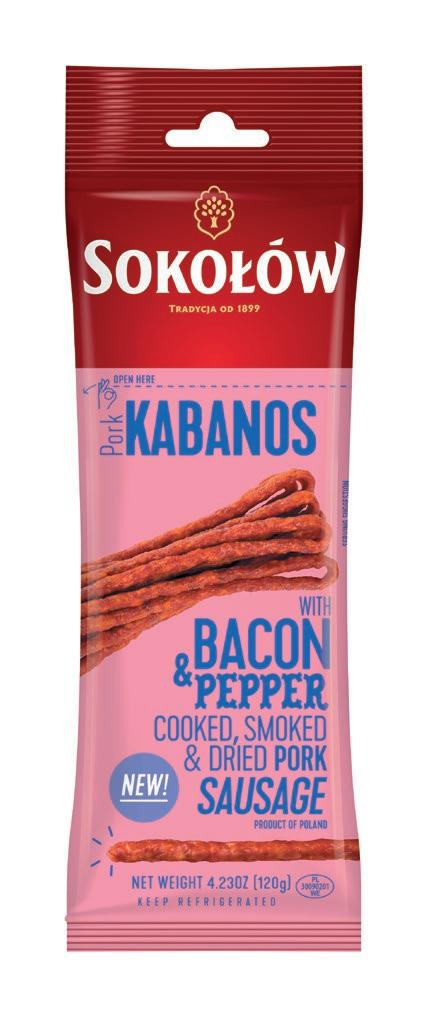




Tomasz Pańczyk, Editor-in-Chief Food from Poland Magazine







Tomasz Pańczyk, Editor-in-Chief Food from Poland Magazine
The private label market in Europe is growing in importance. Faced with high inflation, changing consumer tastes and the search for value for money, retailers are becoming increasingly bold in developing their own product lines. Western Europe has been a mature private label market for years - in countries such as Germany, Spain and the UK, private label products account for more than 40% of the shopping basket, and in some categories - such as dairy, dry goods and frozen foods - as much as 60%. Poland, which has been perceived as a market with a moderate share of private label, is catching up dynamically. The increase in the share of private label in modern trade, especially in discount chains and supermarkets, goes hand in hand with rising product quality and growing consumer confidence. More and more Poles are realising that private label products often do not differ from na-
market insight
10 The private label market – global trends and outlook
28 Private label market – the producers’ view
Polish companies
19 ROS-SWEET and the Moreso Brand at PLMA 2025 in Amsterdam
22 Sushi&FoodFactor – 10 years of flavor, innovation, and global success
interview
24 Małgorzata Ryttel, President of the Management Board of PPH Maxpol
food sector
34 Poles’ nutritional trends
40 What sweets do Poles love?
42 High-protein products enter the big stage
commentary
32 Poland’s Private Label Market Insight
tional brands in terms of taste, safety or nutritional value. Polish food producers play a key role in this process. Our country has become a production base not only for domestic retail chains, but also for European retail giants. Polish processing plants - especially in the dairy, meat, fruit and vegetable and bakery sectors - combine modern technologies, high quality standards and operational flexibility. As a result, they are increasingly being chosen as production partners by chains from across the continent. It should be stressed that Poland’s growing role in the European private label market is not only the result of competitive costs, but above all of a strategic approach to quality, innovation and logistics. For the Polish food sector, this is an opportunity to expand, diversify its order portfolio and strengthen its position on the demanding European market.
39 The retailers’ perspective 44



Editor-In-Chief
Tomasz Pańczyk t.panczyk@foodfrompoland.pl
Managing Editor Monika Książek m.ksiazek@foodfrompoland.pl
Advertisement Office Phone: +48 22 847 93 67
Paciorek
Editorial Office Bagno Street 2/218 00-112 Warsaw, Poland Phone: +48 22 828 93 66 redakcja@foodfrompoland.pl www.foodfrompoland.pl
Fischer Trading Group Ltd.
CEO: Tomasz Pańczyk t.panczyk@ftgroup.pl


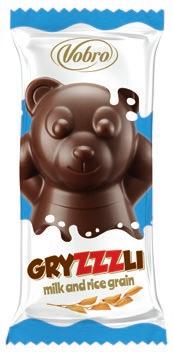
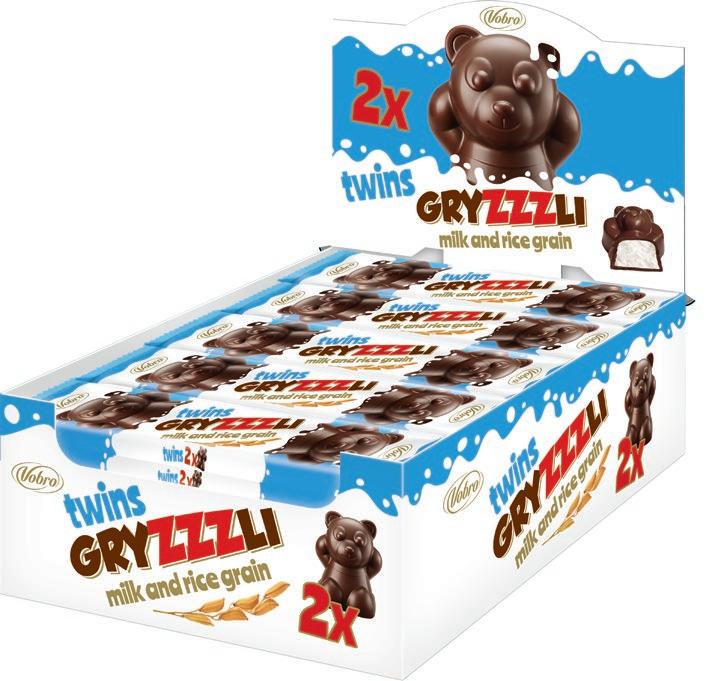







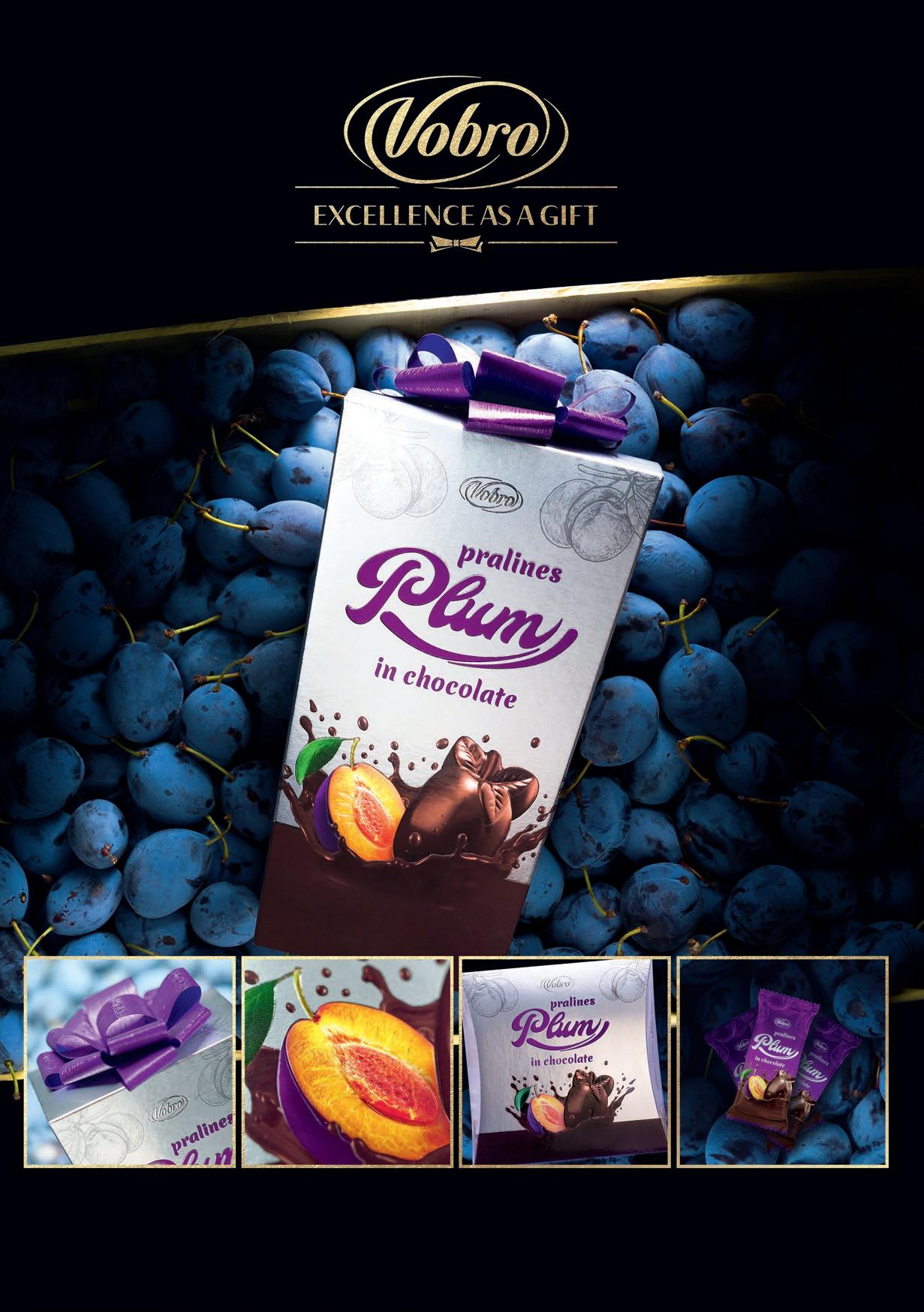

In recent years, the private label market has grown in importance worldwide and has become an integral part of the business strategies of major retail chains.

Magdalena Chajzler Editor
Once mainly associated with budget products, private labels are increasingly seen by consumers as a viable alternative to branded products. Once associated with lower quality and simpler products, they now represent a rapidly growing market segment, covering a wide range of products from basic groceries to premium products.
Private label offers benefits to both retailers and manufacturers. For retailers, they are a way to reduce operating costs, increase margins and build customer loyalty. For manufacturers, it is an opportunity to broaden
their offering and create additional revenue streams by partnering with retailers. Global economic changes such as rising inflation or changing consumer preferences, as well as the development of new production and distribution technologies, are making private labels increasingly attractive in markets around the world.
The rise in popularity of private label products, especially in an era of growing consumer awareness and the need to save money, is no coincidence. The modern FMCG market increasingly values the high quality of these products, which are becoming more technologically advanced and adapted to global trends such as healthy food, organic products and premium offerings. In addition, retailers have invested in creating strong, recognisable brands that offer a wide range of products to
meet the diverse needs of consumers.
The future of the private label market looks promising, especially in the context of the development of e-commerce, the growing importance of ESG (environmental, social and governance) products, and the continued increase in interest in premium products. The private label market is not only growing in strength, it is also changing its face, adapting to the expectations of the modern consumer.
Private labels are playing an increasingly important role in the retail sector, driven by changing consumer preferences and retailer strategies. Retailers have recognised them not only as a way to reduce costs and increase margins, but also as a tool to build customer

loyalty and strengthen their market position. In the past, they were mainly associated with lower prices and lower quality. Today, thanks to investment in development, innovation and unique recipes, they can compete with, and often outperform, branded products.
Rising inflation and the cost of living are driving consumers to look for savings without compromising on quality. Private label fills this gap by offering products that are competitive on both price and value. By cutting out the middleman, retailers can better control quality, tailor their offer to customer expectations and introduce premium products in the private label segment. Private labels are increasingly offering products that are organic, gluten-free, vegan or bio, in response to growing consumer health and environmental awareness.
For retailers, the development of private label also means greater independence from brand manufacturers and the ability to better manage the supply chain. Increased investment in research, new production technologies and innovative distribution methods means that private label products are increasingly being chosen by customers not only for their price, but also for their high quality. As a result, retail chains are building long-term relationships with consumers, who are more likely to return to stores that offer proven and attractively priced private label products.
As a result, private label has become a key element of many retailers’ sales strategy. Their growing popularity is the result of a market
evolution in which quality, innovation and price must co-exist to effectively attract and retain customers.
The development of private label in the FMCG market varies from region to region due to many factors such as consumer culture, shopping preferences, purchasing power and the level of development of the retail sector in a given country. In Western Europe, private label has achieved a strong position, particularly in countries such as the UK, Germany, France and Spain, where it is an important part of the store offer. In the UK, private labels account for 40-50% of the FMCG market, and consumers treat them as a fully-fledged alternative to premium brands. High quality, innovation and product variety make British shoppers eager to choose private label products.
In Germany , private label, especially in chains such as Aldi and Lidl, is synonymous with good quality at an affordable price. These chains dominate the market and offer private label products as a basic part of their range. German consumers value products that combine simplicity, quality and value for money, and private label fully meets these needs.
In southern European countries such as Spain and Italy, private labels are also widely available and growing in popularity, but the situation is still different from Western Europe. Spain, thanks to chains such as Car-
In the UK, private labels account for 40-50% of the FMCG market, and consumers treat them as a fullyfledged alternative to premium brands.
In Germany, private label, especially in chains such as Aldi and Lidl, is synonymous with good quality at an affordable price.
refour and E.Leclerc, offers a wide range of private label products, characterised by competitive prices and quality.
Italy, with its strong culinary traditions, prefers branded products, especially in categories such as wine, delicatessen and food related to local culture.
The American private label market is growing faster than in the past, but it still lags behind Europe. In the US, despite their presence in most stores such as Walmart and Costco, private label products are still seen as a cheap alternative rather than a premium choice, especially in the food, beverage and luxury goods segments. However, private label is gaining ground in segments such as health, organic and beauty.
In developing countries such as China, India and Brazil, the private label segment is gaining momentum. As purchasing power increases and the retail sector develops, private label products are beginning to be seen as a cheaper but equally valuable alternative to more expensive branded products. In China and India, where e-commerce is growing
Differences in the popularity of private labels are due to many factors, including local preferences, purchasing power, consumer culture and the level of development of retail chains.
in popularity, private label is an attractive option for consumers looking to save money. In Brazil, private label is gaining popularity as more consumers focus on saving money, although its market presence is still smaller than in developed countries.
In developed countries such as Canada and Australia, private label is growing in popularity due to the wide range of organic and natural products available. Retailers such as Loblaw in Canada and Coles and Woolworths in Australia are continually expanding their private label ranges to meet the growing demand for healthy, organic and environmentally friendly products. In countries with smaller markets, such as New Zealand, the presence of private label is growing, particularly among younger consumers who are more likely to opt for cheaper but higher quality products.
Differences in the popularity of private labels are due to many factors, including local preferences, purchasing power, consumer culture and the level of development of retail chains. In developed countries, private labels are an integral part of the FMCG market, while in developing countries their popularity is growing, indicating further potential for development in the coming years.
In Poland, retail chains such as Biedronka (Jeronimo Martins) and Lidl Polska dominate the private label market.


The development of private labels in the FMCG sector is reflected in the strategies of many global and local retail chains, which have recognised the opportunity to reduce costs, increase customer loyalty and differentiate their offering. Private label is now one of the key elements of commercial strategies, both in discount chains and in supermarkets and premium stores. Examples of selected retail chains that are successfully developing their own brands illustrate this trend perfectly.
In Poland , retail chains such as Biedronka (Jeronimo Martins) dominate the private label market, offering a wide range of products including both food and everyday items. Biedronka develops many private label brands such as Dada (baby products), Pilos (dairy products), Go Vege (vegetarian products) and Świeże Smaki (sausages and ready meals). These products are very popular because they are competitively priced and of good quality.
Biedronka is also investing in the development of premium lines, offering brands such as Jeronimo Martins - a line of premium products that meets the growing expectations of consumers looking for higher quality food.

Another chain that is consistently developing its own brands in Poland is Lidl, an international leader in the discount segment. In Poland, Lidl develops not only economy brands, but also premium lines. Examples include the Deluxe brand, which offers higher quality food products, as well as Alesto (snacks and delicacies) and Cien (cosmetics). With these brands, Lidl attracts customers who are looking for high-quality products at affordable prices. In addition, the chain is intensively developing the organic and natural products segment in response to the growing trend towards a healthy lifestyle.
In Europe, many chains have also invested heavily in developing their own brands, each tailoring their offer to the specific needs of the market. German discount giant Aldi is one of the pioneers of private label in Europe. The chain offers almost 100% private label products, the quality of which is highly appreciated by consumers. Aldi has brands such as Moser Roth (chocolate) and Lacura (cosmetics), which have become synonymous with high quality at a competitive price. Thanks to innovative approaches to production and distribution, Aldi is able to offer its customers attractive prices without compromising on quality.

In Europe, many chains have also invested heavily in developing their own brands, each tailoring their offer to the specific needs of the market.
Another European leader in private label is Tesco in the UK, which has an extensive range of private label products. The Tesco brand is divided into three main lines: Tesco Value (value products), Tesco Standard (standard products) and Tesco Finest (premium products). This allows Tesco to reach a wide range of consumers by offering both value for money everyday items and exclusive food. The chain is also expanding its organic food range in response to the growing demand for healthy food.
In the US market, one of the leaders in private label is Walmart, which offers a wide range of private label products. Brands such as Great Value (groceries) and Equate (toiletries and cosmetics) are synonymous with low prices and good quality. Walmart has gained recognition from consumers who are happy to choose private label products without compromising on quality. In addition, Walmart, like other chains in the US, is focusing on developing organic and healthy products in response to the growing health trend in the country.
Costco, a chain that has become very popular thanks to its wholesale model, is developing its own brand, Kirkland Signature. This brand covers a wide range of products,
from groceries to household chemicals and cosmetics. Kirkland Signature products are particularly popular because of their high quality and attractive prices. Costco successfully combines its own brands with attractive prices, which attracts many loyal customers, especially those who want to save money by buying in bulk.
Canada is not lagging behind when it comes to private label development. Canadian retailer Loblaw offers the President’s Choice brand, which includes both premium and standard products. President’s Choice is particularly popular with consumers who value high quality at reasonable prices. Products are available in many categories, including food, beverage and cosmetics, and the chain continues to expand its offering with innovative solutions such as organic and plant-based foods.
In Australia, Coles and Woolworths are developing their own brands to meet the needs of consumers looking for high quality, healthy and environmentally friendly products. Both chains offer a wide range of products, including organic foods, cosmetics and cleaning products. The chains’ own brands are highly regarded and are perceived as competitive with traditional brands.
The development of private labels in the FMCG sector is the result of many factors influencing retailers’ strategies and changing consumer preferences. Initially perceived mainly as a cheaper alternative to branded products, private label is now becoming a full-fledged competitor in almost all market segments - from economy to premium, organic and health products.
One of the key factors accelerating the development of private label is changing consumer behaviour. Today’s shoppers are increasingly aware of both product composition and value for money. Many people no longer focus solely on brand loyalty, but rather base their choice on an analysis of the composition, origin, nutritional value or transparency of production. Private labels are successfully responding to these expectations by offering high quality at an affordable price, attracting a growing number of conscious consumers.
Another important factor influencing the development of private labels is inflationary pressure and the rising cost of living. Faced with rising prices, consumers are increasingly looking for cheaper alternatives to branded products, especially if they offer comparable quality. By cutting out the middleman,




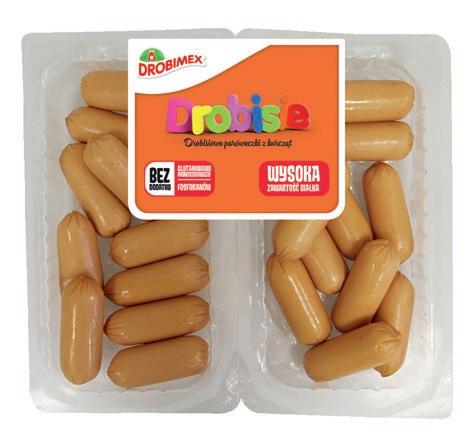

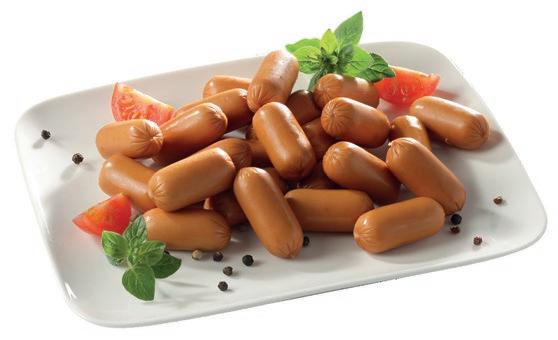



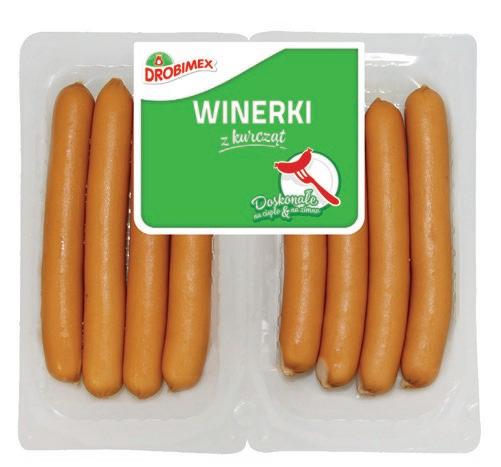



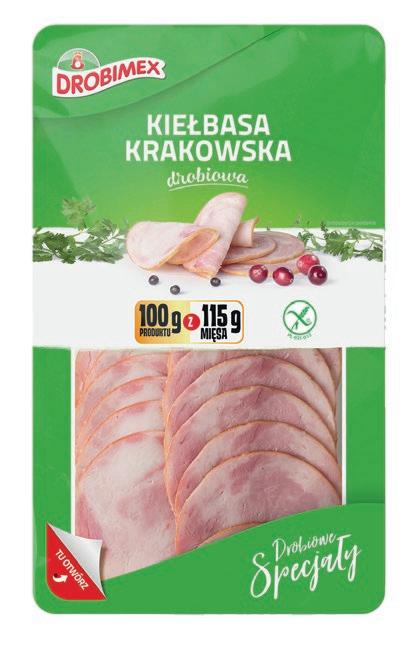
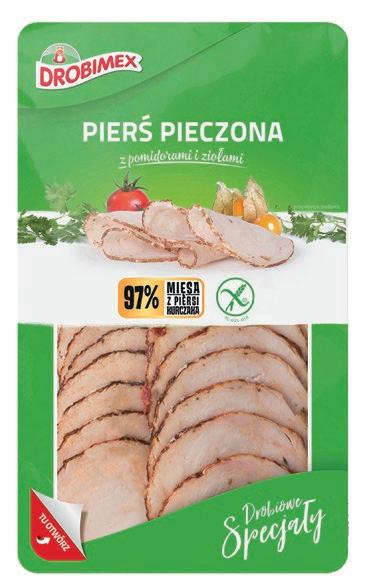



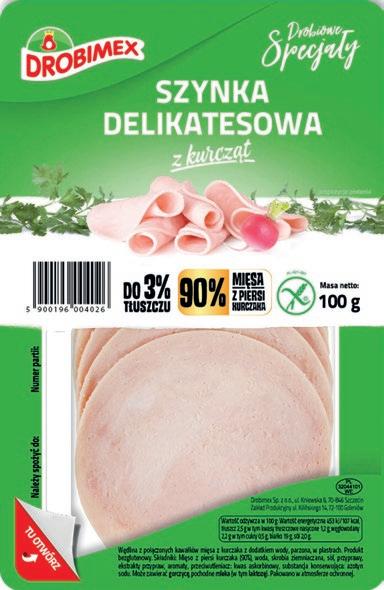
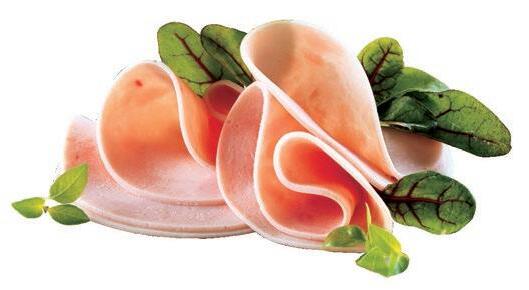


retail chains can significantly reduce production costs and offer more attractive prices. In countries with high inflation, such as some European markets and Latin America, private label products have gained in popularity and have become the first choice for many families looking to save money without compromising on quality.
Another important aspect of private label development is innovation and the development of the premium segment. Until recently, private label products were mainly associated with cheaper substitutes for branded products. Today, retail chains are increasingly investing in quality and innovation. They are launching premium, organic, gluten-free and functional lines that compete with the most prestigious brands. Consumers looking for healthy and value-for-money products are increasingly turning to private label products, which often offer a better composition than their branded counterparts, making them even more attractive.
Consumers’ growing environmental awareness is also important. More and more people are paying attention to the origin of products, their carbon footprint, packaging and production methods. Retail chains are developing their own brands with sustainability in mind to meet these expectations. They offer products in biodegradable packaging, sourced from certified farms or produced in an environmentally friendly way. Ecological solutions are becoming a key factor in purchasing decisions, especially among younger consumers, who are increasingly choosing
More and more retail chains are choosing to sell their products online, allowing them to reach a wide range of customers, especially those who prefer to shop online.
Retail chains often work with reputable manufacturers to produce products under their own brands. In addition, retailers are increasingly forming strategic partnerships with suppliers to develop unique recipes and products that are not available from competitors.
brands that offer planet-friendly products.
Changing production strategies and working with suppliers is another important element. Contrary to popular belief, private labels are not produced by anonymous factories. Retail chains often work with reputable manufacturers to produce products under their own brands. In addition, retailers are increasingly forming strategic partnerships with suppliers to develop unique recipes and products that are not available from competitors. Thanks to these partnerships, private labels can differentiate themselves from tradi-
tional brands by offering, for example, exclusive cosmetics lines, innovative food products or functional items tailored to specific consumer needs.
The development of e-commerce has also had a huge impact on the growth of private labels. More and more retail chains are choosing to sell their products online, allowing them to reach a wide range of customers, especially those who prefer to shop online. The increase in private label sales through e-commerce platforms, as well as the development of the subscription model, makes these products more accessible and competitive in the market. In some cases, retailers are even developing dedicated online stores exclusively for their private labels, allowing them to build stronger relationships with their customers and respond even better to their needs.
In summary, the development of private labels in the FMCG sector is the result of changing consumer habits, economic pressures, innovation, growing environmental awareness and the development of online retailing. This means that private labels are no longer just a cheaper alternative, but are becoming full-fledged market players, adapting to the changing expectations of the modern consumer.
The myth that private labels are produced by anonymous, low-quality companies is false. In fact, many private label products are made in the factories of reputable man-
ufacturers who produce goods for premium brands. Working with reputable companies helps to improve the quality of private label products, enabling them to compete effectively in the FMCG market. As a result, private labels are growing in popularity and becoming full-fledged players in many market segments.
For brand manufacturers, cooperation with retail chains in the production of private labels is profitable. It allows for better utilisation of production capacity, increased profitability and the provision of stable, longterm contracts. For large companies, private
The cooperation between chains and manufacturers does not end with the production of standard products under their own brand. Retailers are involved in the creation of unique recipes that make their offer stand out in the market. Exclusive cosmetics lines, organic, vegan and functional foods, as well as dietary supplements and protein-rich foods are becoming more common. Many chains are also investing in research and development, working with laboratories and research centres to develop innovative products that meet the growing needs of consumers.
Sustainability is becoming another key
sult, private label is setting new standards in the FMCG market and adapting to changing consumer expectations.
The private label market will continue to grow dynamically as retailers and manufacturers adapt their strategies to changing consumer expectations and global market trends. The growing importance of private label is already evident in many countries, and the segment is forecast to strengthen its position in food and other FMCG categories. The desire to meet the growing needs

label production can be an important part of their strategy, allowing them to diversify their revenues and hedge against fluctuations in demand for their branded products.
Retailers benefit by being able to offer their customers high quality products made in factories that meet the highest production standards. This collaboration allows them to introduce innovative products that match and sometimes exceed the quality of their branded counterparts. By eliminating the costs associated with brand awareness and promotion, retailers can offer products at more attractive prices, making them more competitive.
element of this collaboration. Retail chains are increasingly focusing on transparency, informing customers about the origin of their private label products. Some are highlighting the fact that their products come from reputable manufacturers on the packaging, building consumer trust and loyalty. In addition, some chains are introducing certification and quality control schemes to assure consumers of the highest standard of goods on offer. Working with branded manufacturers is becoming a key element in the success of private label, allowing them not only to grow in popularity, but also to develop increasingly advanced and innovative products. As a re-
of consumers who expect high quality products at attractive prices, as well as increasing market competition, will drive the development of private labels.
One of the main directions of development will be their further premiumisation. Retail chains are increasingly offering private label products that can compete with premium brands in terms of taste, quality of ingredients and attractiveness of packaging. Consumers are becoming more demanding and expect not only a good price but also unique recipes, natural ingredients and modern design. In response to these demands, many private labels are expanding their portfolios
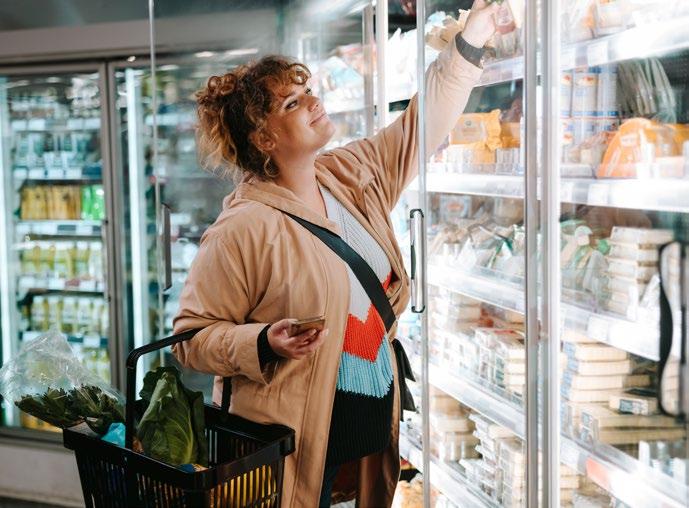
Consumers are becoming more environmentally aware, which means that private label brands need to adapt their offerings to meet environmental requirements.
to include exclusive delicatessen, organic, vegan and functional product lines that meet the growing interest in healthy lifestyles.
The development of e-commerce and digitalisation is another key trend for the future of the private label market. The rise of online shopping, especially post-pandemic, is changing the way consumers make purchasing decisions. Retailers are investing in the development of online platforms and mobile applications that facilitate the sale of private label products. In addition, the use of advanced data analytics and artificial intelligence makes it possible to personalise the offer and recommend private label products to consumers based on their previous purchases. This allows online stores to be more responsive to customer needs and private label brands to reach a wider range of consumers.
Another important trend is sustainability, which is becoming a priority for both manufacturers and consumers. Consumers are becoming more environmentally aware,
which means that private label brands need to adapt their offerings to meet environmental requirements. Retail chains are investing in environmentally friendly packaging, eliminating plastic and improving supply chain transparency. Private label products are increasingly being certified as organic, vegan, GMO-free and sustainable in production and transport. Consumers, who are increasingly guided by sustainability values when making purchases, expect private labels to offer products that are not only good quality, but also ethical and environmentally friendly.
In terms of innovation, private labels are not limited to basic products such as food and beverages, but are also developing segments related to health, beauty and nutritional supplements. Retail chains are investing in research into new product categories such as plant-based foods, meat alternatives, functional foods and dietary supplements. In addition, retailers are starting to introduce technological innova -
tions such as smart packaging, which extends the shelf life of products and enables better freshness management, which is very important in the food industry.
The globalisation of the private label market is leading to increased competition between retailers and global brand manufacturers. As retail chains become stronger, they will increasingly compete with traditional FMCG manufacturers not only on price, but also on quality and innovation. Private label brands, once associated mainly with cheaper alternatives, are also beginning to attract consumers with their exceptional quality and unique products. In the future, many private label brands can be exported to new international markets, enabling further growth for retailers who are becoming strong players in the global market.
It is also worth noting that the future of the private label market is segmented: from budget products to exclusive premium lines. Consumers can choose from private label brands tailored to their preferences - from affordable products to those with exceptional quality, composition and packaging. The development of the organic, plant-based and health segments is a response to changing market needs, but also an active shaping of new trends set by retailers.
In the context of technological innovation, the personalisation of offers through artificial intelligence, the introduction of smart packaging, the development of online sales and the implementation of sustainable solutions will be crucial for the future of the private label market. Consumers are increasingly choosing products that are not only cheaper, but also reflect their environmental and ethical values. In the coming years, private labels have the opportunity to grow and strengthen their position as a major player in the FMCG market.
No longer just an alternative to branded products, private labels are becoming consumers’ first choice, especially in the context of rising inflation, changing shopping habits and growing environmental awareness. Their future is therefore very promising, and their success will depend on their ability to adapt to changing market trends and consumer expectations.
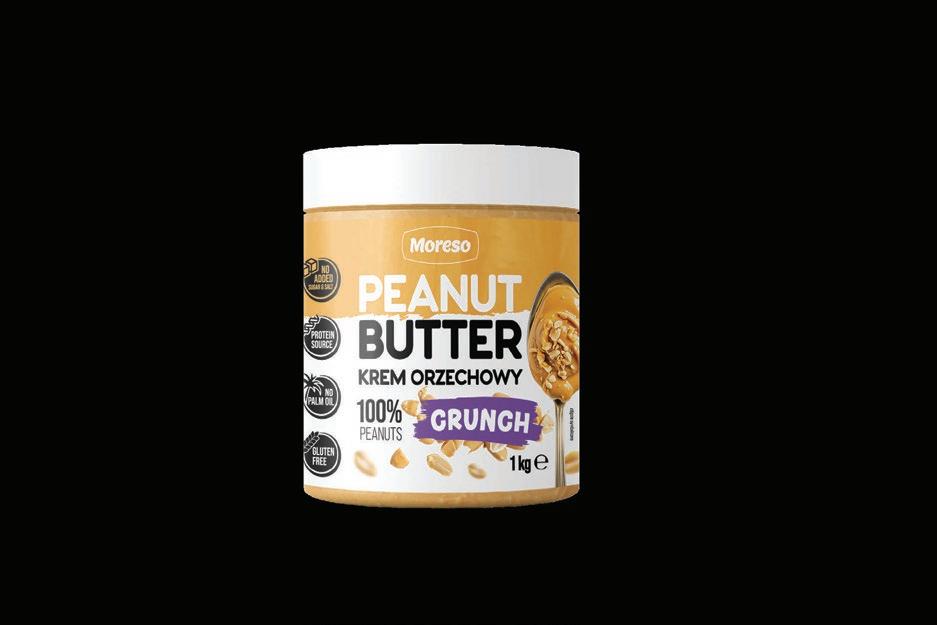




ROS-SWEET, the manufacturer of, among others, nut-based snacks, nut butters, and caramel-coated nuts, will present its products portfolio at the prestigious PLMA’s "World of Private Label" trade show, taking place on 20–21 May 2025 in Amsterdam. e event will be an excellent
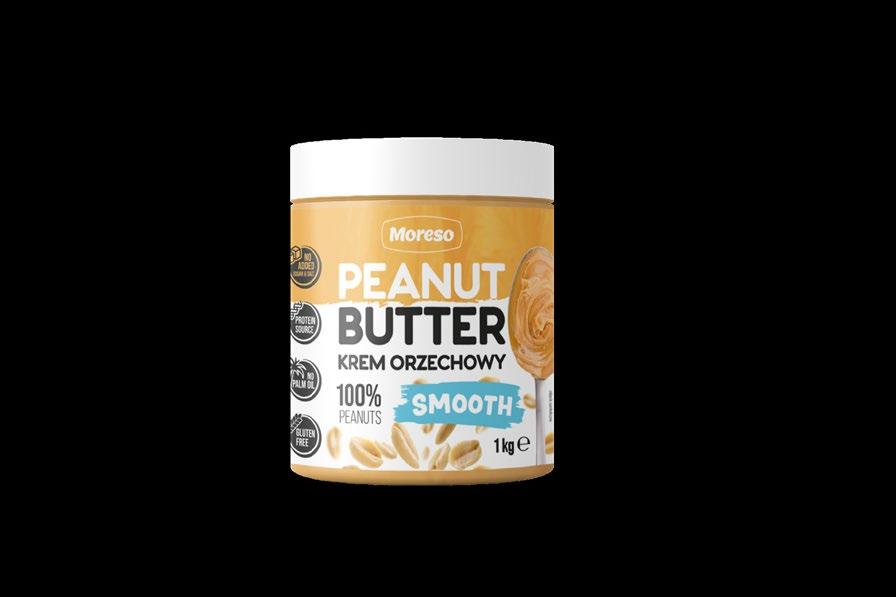



only its extensive private label production capabilities but also the development potential of products under the well-known MORESO brand.
During this year's edition of the show, visitors to the ROS-SWEET stand will have the opportunity to explore a wide


products tailored to diverse market needs. Visitors will also be able to learn more about the company's wide range of packaging solutions, enabling exible options adapted to individual client and retailer requirements.
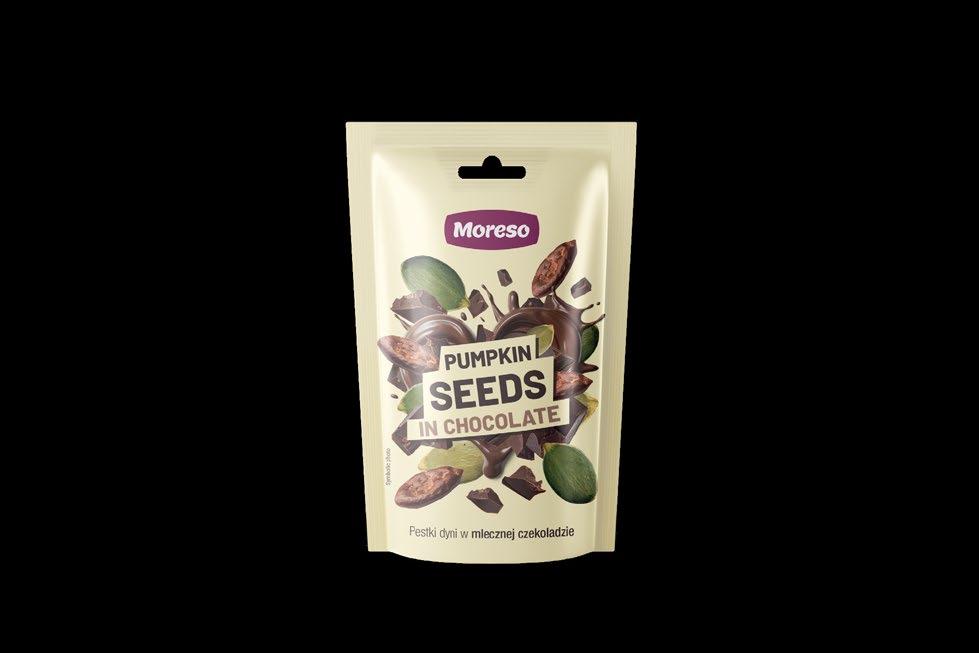



With nearly 20 years of market experience, ROS-SWEET has established itself as a trusted business partner, complying with the highest quality standards and holding essential certi cations that con rm its commitment to food safety and production excellence. A modern machinery park, the use of cutting-edge production technologies, and a exible approach to private label projects enable the company to deliver innovative product and packaging
Moreover, as a direct importer of raw materials, ROS-SWEET o ers highly competitive pricing without compromising on the superior quality of its products.
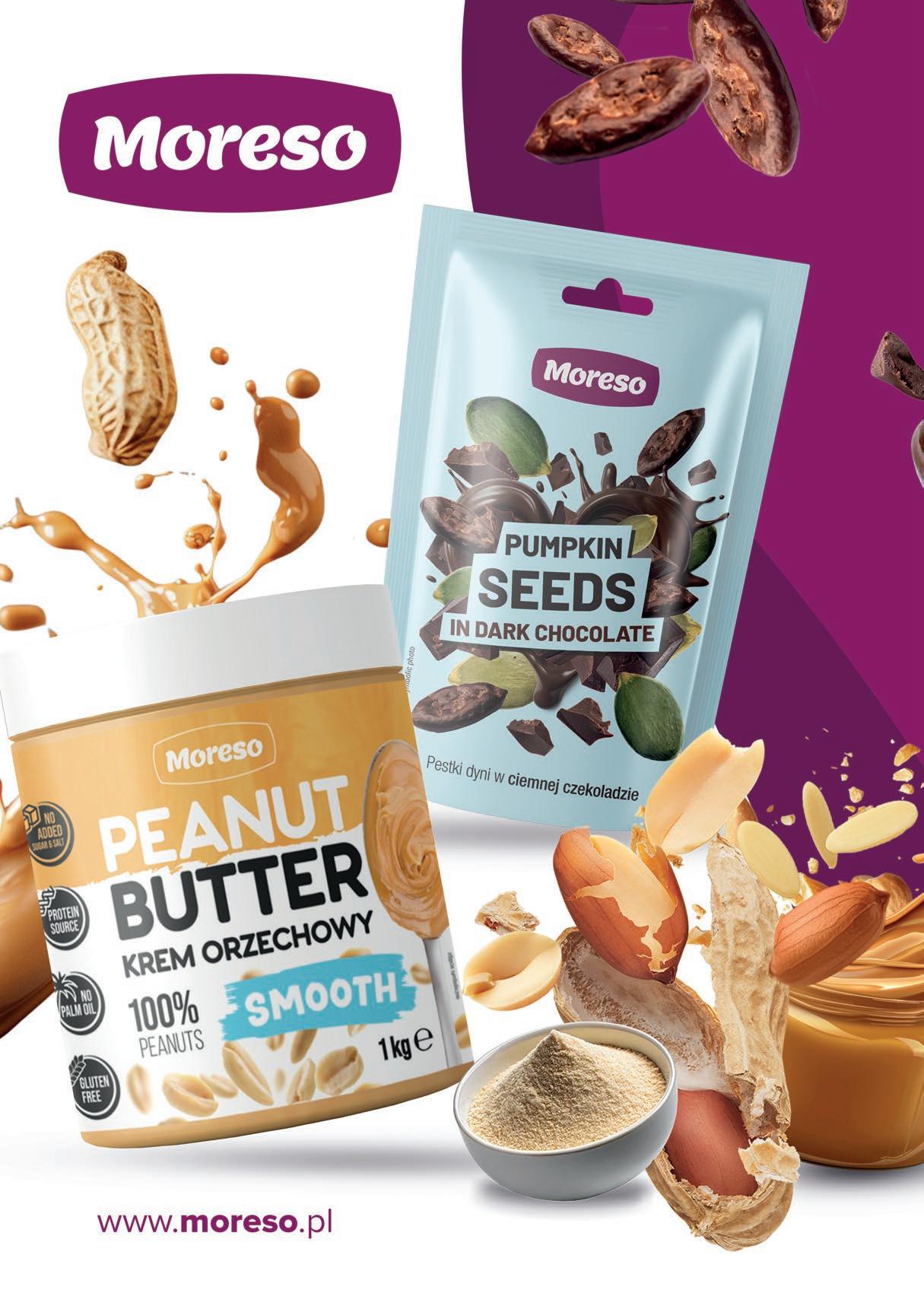
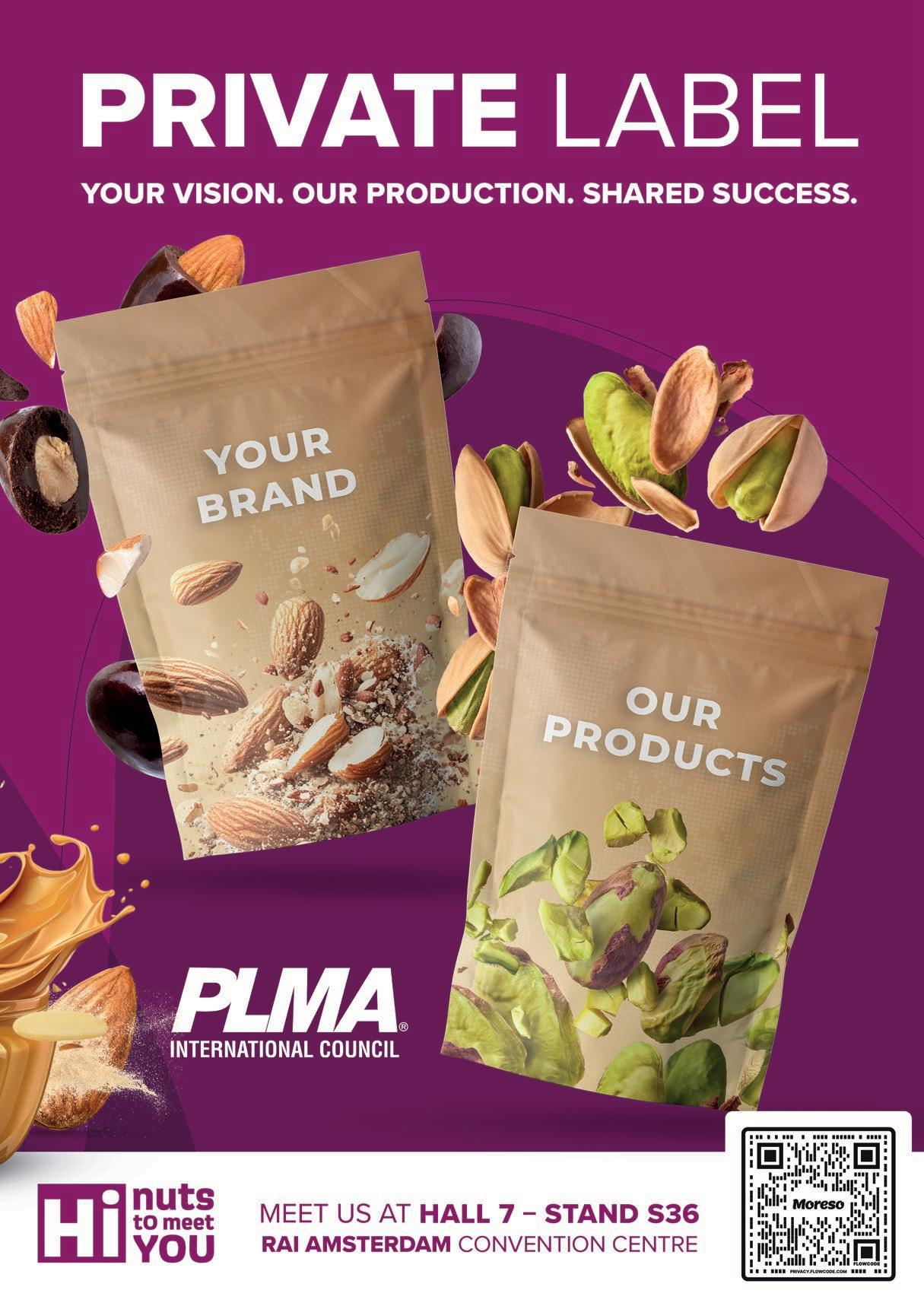
This year, Sushi&Food Factor proudly celebrates its 10th anniversary. What began in 2015 as a small factory in Robakowo, near Poznań, Poland, has evolved into a leading producer of ready-to-eat sushi and Asian cuisine, supplying products to 15 European countries.

Sushi&Food Factor started with humble beginnings—employing just 30 people and focusing on basic sushi sets. However, innovative technologies, such as liquid nitrogen cryogenic cooling and modified atmosphere packaging, allowed the company to quickly surpass its competitors by offering extended shelf-life products without compromising freshness or quality.
Today, the company produces 170,000 trays of sushi daily, along with a wide range of other Asian-inspired dishes, onigiri and sweet onigiri, bao, ramen, chirashi sushi, and bento. All products are crafted at the Robakowo facility, emphasizing the local character of a globally recognized brand.
From the very beginning, our goal was to create sushi that is delicious, healthy, and easily accessible. Today, Sushi&Food Factor is more than just a factory – it is a place where people’s dedication meets cutting-edge technology to deliver the highest quality products.
Dariusz Tubacki, co-owner of the company
Sushi&Food Factor is a leading producer of ready-to-eat sushi and Asian-inspired dishes in Europe. Founded in 2015 in Robakowo, Poland, the company delivers fresh, high-quality, and innovative products to consumers across 15 European countries daily. By combining local roots with a global vision, Sushi&Food Factor continues to revolutionize the ready-to-eat Asian cuisine market, making premium sushi more accessible to millions of consumers.
Sushi&Food Factor combines business growth with strong social responsibility. The company actively supports local initiatives, including Poznań’s Judo Academy, and engages with communities by organizing culinary workshops for children, seniors, and local residents. In 2024, the company adopted a red panda from the Poznań Zoo, further emphasizing its commitment to sustainability and wildlife conservation.
One of its latest ventures includes the opening of GOKO Express, a gastronomic point in Kamionki, offering exclusive products not available in retail chains, showcasing the company’s expertise in culinary innovation.
Sushi&Food Factor is set on further expanding its presence in international markets while strengthening its position in smaller Polish towns and in the Europe. The com pany is also committed to developing new products that fuse traditional Japanese cui sine with modern flavors and premium quality standards.
„Our 10th anniversary is a moment of reflection but also a source of inspi ration for future growth. We aim to not only remain a market leader but also a company that brings people to gether through flavor and culture,” adds Anna Tubacka.
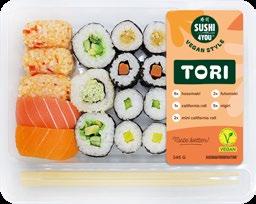
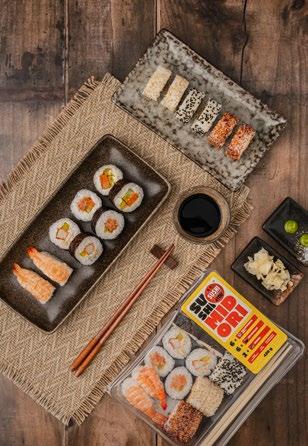

Thanks to the dedication of our team and the trust of our customers, we have not only become the leader in the readyto-eat sushi category but also an innovator in the world of Asian cuisine.
Anna Tubacka, CEO of Sushi&Food Factor

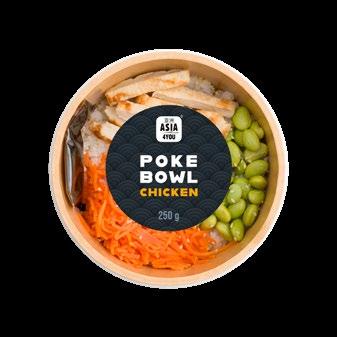
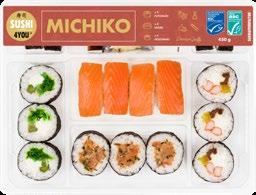
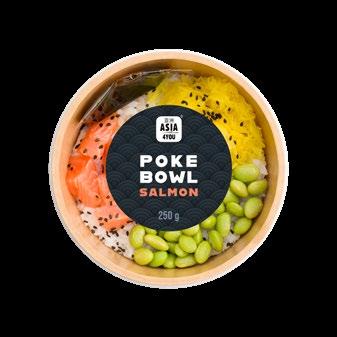
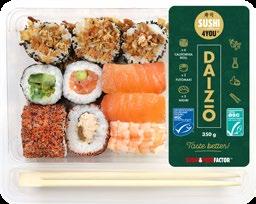
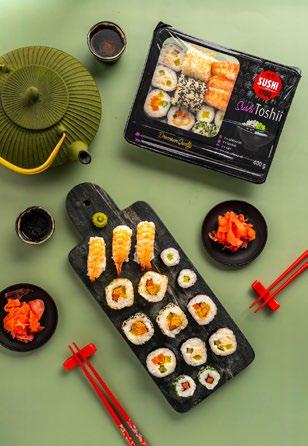
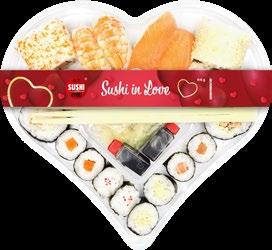
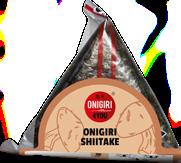
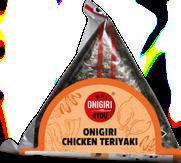
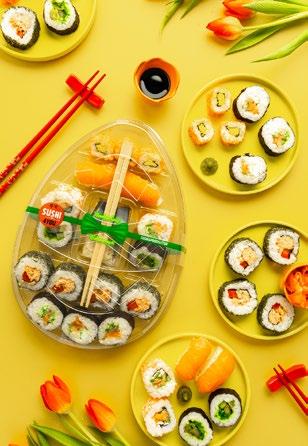


Małgorzata Ryttel President of the Management Board of PPH Maxpol Sp. z o.o.
35 years in the market is a unique anniversary that demonstrates strong foundations and the ability to adapt to changing business realities. How did Maxpol start and what were the biggest challenges you faced in the early years?
Yes, 35 years is indeed a special anniversary. We entered the exhibition market in May 1990 when we started our family business. The beginnings were not easy - at that time we had only a few employees and concentrated on organising exhibitions abroad, mainly in the countries of the former Soviet Union. The first exhibition we organised was in Lviv under the name LEOPOL. This event marked the beginning of our exhibition activity, which has been developing dynamically ever since. At that time we were facing a difficult economic and political situation in Poland. Organising trips for Polish companies to Ukraine or Russia, e.g. Moscow, was a big challenge. However, we managed to establish friendly relations with the most important fair organisers in each country, which enabled us to expand our activities in Ukraine, Lithuania, Latvia, Estonia and Russia.
Over three and a half decades, Maxpol has organised trade fairs on almost every continent, supporting the development of Polish exports. Which of your international projects would you consider
to be groundbreaking or particularly important for the development of your company, and why?
It is true that we have organised trade fairs on all continents. We consider ISM in Cologne, the world’s largest confectionery trade fair, and PLMA in Amsterdam to be milestones in our history. In the beginning, we only had two companies and a small stand. It was also a valuable experience for us in terms of working with organisers from Western Europe. Today, at this year’s PLMA show, for example, we are already servicing 50 exhibitors, which shows how far we have come.
Your motto is: ‘Exhibitions are the best direct marketing tool’. How do you think the role and perception of exhibitions is changing in the era of digital transformation, the growth of e-commerce and the dominance of social media?
I agree - exhibitions remain the most effective direct marketing tool. The opportunity for direct contact between the manufacturer and potential customers is irreplaceable. Face-to-face meetings allow you to get detailed information about the product and agree on pricing and logistics, which often leads to contracts being signed. Despite the development of e-commerce and social media, physical presence and personal relationships still play a key role. We believe that trade
shows will remain an important part of an effective marketing strategy for many years to come.
You have worked with hundreds of Polish companies over the years. What are the expectations and needs of exhibitors who decide to participate in trade fairs today, and how have these needs evolved over the past decades?
Over the past 35 years we have seen a significant change in the approach of exhibitors. We have moved from modest stands with display cases to advanced, custom-built structures equipped with screens, monitors and other modern visual communication tools. Today’s stands must not only present the product, but also attract the attention of visitors and build the brand image. Our aim is to create elegant, modern and functional stands that support our clients’ business objectives.
Maxpol was one of the first industrial exhibition organisers to open up to the Eastern European markets, including the countries of the former USSR. What was and is the importance of these markets for the development of Polish exports, especially in the context of changing geopolitical conditions?
We were one of the first trade fair organisers to open up to Eastern European markets. We started by reviving the pre-war fair in Lviv, where we were accompanied by a large group of about 30 companies, which was quite a lot at that time. Later we expanded our activities to Kiev, Dnipropetrovsk, Kryvyi Rih, Kaliningrad and Moscow, where we organised large automotive shows, mainly in the spare parts segment. Poland has long had a strong position as a producer of parts for cars and trucks. Unfortunately, changing geopolitical conditions are currently limiting the opportunities for further cooperation in these markets.
by both national and international organisations. We are a member of the Polish Chamber of Exhibition Industry, we have the title of Leader of Trade Fair Services and numerous recommendations and awards, including the title of Polish Food Export Ambassador. We believe that the strength of the Polish export offer lies in the excellent price/quality ratio, product innovation and the flexibility of producers to adapt to the needs of different markets.
Like many other sectors, the exhibition industry is currently facing dynamic changes, from technological challenges to new models of participation. What are the main trends shaping the exhibition market today and how is Maxpol adapting to these changes?
Rather than talking about revolutionary trends, it is worth paying attention to the development of technology, especially multimedia, which is increasingly appearing on stands. Screens, video presentations and interactive elements effectively attract visitors’ attention. We also adapt our offer to these changes by encouraging exhibitors to use modern means of communication. In the food industry, especially in the confectionery and meat segments, Poland has many well-known brands and successes on foreign markets.
We do not limit ourselves to organising exhibitions. We offer comprehensive support – from stand design and technical support to organising the transport of exhibits.
Maintaining a leading position for 35 years requires not only consistency but also the ability to develop continuously. What values and skills do you think are key to building a brand with a strong position in such a competitive and volatile market?
Maxpol does not limit itself to organising trade fairs - it also offers full support in stand design, logistics and technical services. What distinguishes your approach to comprehensive exhibitor services and building long-term relationships with customers?
We do not limit ourselves to organising exhibitions. We offer comprehensive support - from stand design and technical support to organising the transport of exhibits. We also help with hotel bookings and flights. From the very first contact, we work with the exhibitor to design the stand and determine its appearance, materials and product presentation. Our priorities are timeliness, quality of workmanship and a partnership approach to each client. This is why many exhibitors stay with us for years.
You have received numerous awards for your contribution to the promotion of the Polish economy on foreign markets. In your opinion, what makes Polish exports attractive, especially in the context of the food and industrial sectors?
We are proud that our activities have been recognised many times
Maintaining our leadership position for 35 years has been possible thanks to the consistency, reliability and hard work of the entire team. Our people are our greatest asset - they deliver projects, manage client relationships and are responsible for the success of the business. Building a strong brand requires honesty, responsibility and commitment at every stage of the business. We believe that these foundations will enable us to celebrate many more anniversaries in the future.
Finally, an anniversary is not only a time for reflection, but also an opportunity to look to the future. What are your development plans for the coming years? Can we expect new areas of expansion, services or innovations from Maxpol?
We are optimistic about the future. We are convinced that exhibitions will remain the basis for effective marketing. We are currently considering two directions: developing our business or optimising our existing offer. Regardless of the final decision, we plan to develop our presence in markets less explored by Polish exhibitors, such as Africa and South America. Our show schedule already includes events in these regions and we encourage companies to take advantage of these new opportunities.
Thank you.
Tomasz
Pańczyk, Editor-In-Chef
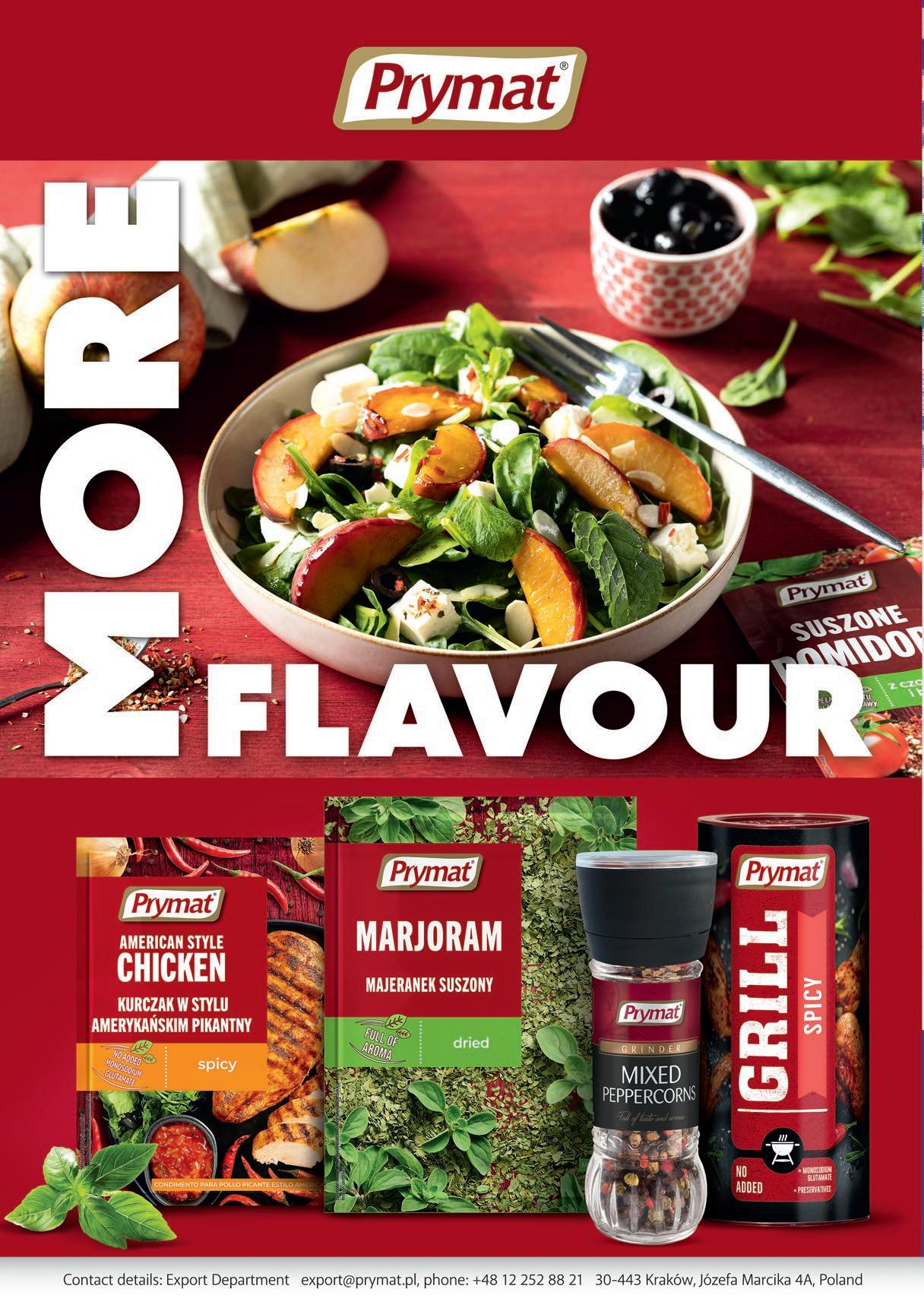
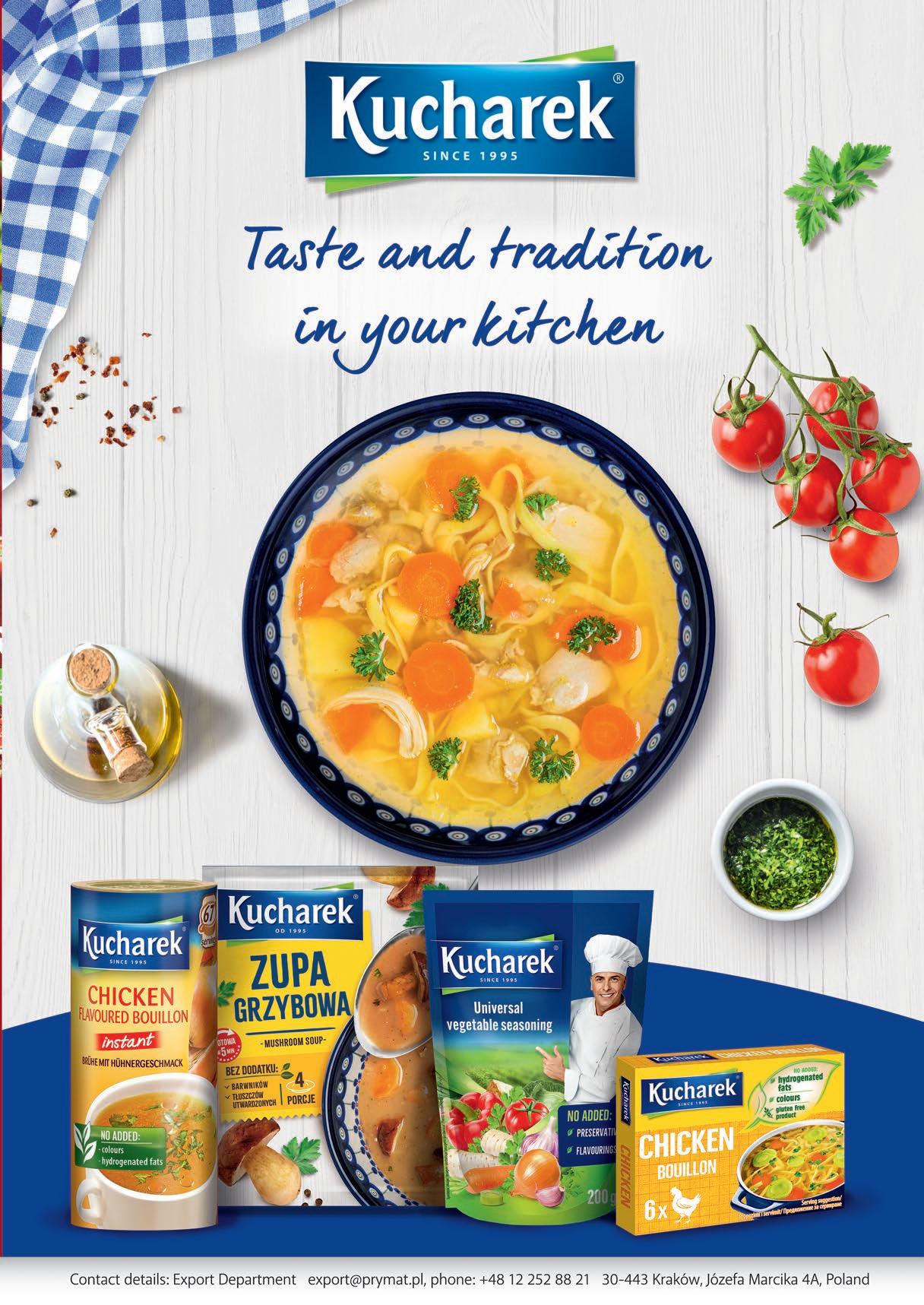

Ewa Muchowska Director of Private Label Sales and Export Iglotex


Maciej Herman Managing Director
Lotte Wedel
Piotr Jaroszewski National Sales Director Komodo Energy Drink Poland


Małgorzata Wesołowska-Rucińska Marketing
Manager
LEVANT FOODS
Małgorzata Cebelińska Vice-President of the Management Board
SM Mlekpol
Private label products are successfully finding their place on store shelves and in consumers’ homes, outperforming global brands. Of course, attractive prices continue to play a key role, but they are not the only factor driving purchases. Retail chains are keen to invest in their brands, which is also important.
Virtually every chain, regardless of sector, now has its own brand, which it develops and promotes, building an increasingly strong position in the market.
Today’s consumers have increasingly high expectations and make conscious choices, paying attention to the quality, composition and labelling of the products they buy.
Customers are keen to use blogs and influencer channels and are interested in their opinions. They use reviews on quality, how to use products and inspiring recipes.
A key challenge is to balance high quality with competitive pricing. Private label products tend to have lower margins, and modern production needs to adapt to consumer preferences, changing legislation and the challenges of sustainable production, which often results in higher costs.
Wedel’s position on the domestic market is good, we are one of the 3 major players on the Polish chocolate market. The company is currently allocating considerable resources to investment in development. On an ongoing basis, we are automating and modernising internal operational processes and investing in the creation of new production lines. We have recently constructed two new buildings. One of them will house a place unique in Europe – the E.Wedel Chocolate Factory museum, which will invite everyone to a unique world of chocolate, teaching and entertaining. This project will not only become part of the capital’s urban fabric and emphasise the local roots of our company but will also make it possible to invite visitors from all over the world to join us on a chocolate journey. The remaining spaces will enable us to further develop the Wedel range, increasing efficiency and production capacity.
Private label brands offered by retailers and distributors have become a key element of the food market, competing with branded products not only in price but also in quality and innovation. Amid rising living costs, consumers are increasingly opting for more affordable alternatives, placing the Private Label sector at the forefront of the industry.
One of the key challenges for private label brands is building consumer trust through continuous quality improvement and transparency in composition and production processes. There is also a growing emphasis on sustainable development and eco-friendly packaging, requiring additional investments.
The opportunity for Private Label lies in the increasing acceptance of these products in the Polish, European, and global markets. Functional, health-oriented, and premium products are gaining traction, opening new possibilities for manufacturers.
As a producer of the Komodo Energy Drink private label brand, we offer a wide variety of flavors in 250 ml cans, catering to diverse market needs. Our products stand out due to the highest quality ingredients, innovative formulas, and meticulously developed production processes, ensuring exceptional taste and effectiveness. We are planning further expansion both in Poland and internationally.
The dynamic growth of private label brands presents both challenges and tremendous opportunities.
An international presence is of strategic importance to us. Step by step we are building our position and brand awareness in selected markets – we are present in more than 60 countries and exports currently account for around 10% of the company’s turnover. We want – and we are doing everything – to make sure that not only the domestic market tastes our chocolate, but that the E.Wedel brand is known in countries all over the world. Wedel’s biggest growth opportunities are the unique and high-quality chocolate products that have been made in our factory for more than 170 years. What is important for our customers – we are a company that is flexible, innovative and open to dynamic cooperation. A mixture of these qualities allows us to achieve our goals and cultivate the traditional values that were introduced to the company by its founders – the Wedel family. The main threat, in my opinion, is the rising prices of raw materials, mainly cocoa. It is worth noting that they have increased several times over the last few months, making cocoa more expensive than copper. Other risks include the dynamic change of other costs (employees, energy). Of long-term importance are the challenges of climate change, political and legislative changes (still not very business-friendly in terms of assumptions and implementation time). Also relevant is the issue of proliferating armed conflicts, which also destabilise many areas of business operations. However, we do our best to turn threats into opportunities and develop the E.Wedel brand in even the most unfavourable conditions.
The key to success lies in flexibility, investment in quality, and close cooperation with retail chains and distributors to deliver products that meet the expectations of modern consumers.
Currently, as a milk producer, Poland ranks fourth in Europe, with a positive growth rate of 8% in the first half of 2024. Due to natural conditions, our country still has great potential for the development of milk production, provided that dairy farmers are provided with favourable and stable conditions for their further development and investment. This depends both on the policy of the European Union as a whole and the adaptation of available resources to local conditions, as well as on decisions taken at national level.
The growing popularity of private labels is mainly due to attractive prices, better quality, wider availability and changing consumer perceptions.
The most significant changes that have contributed to the rise of private labels in the market include:
Increased Trust in Quality
Consumers are increasingly aware that private label products are often manufactured by the same suppliers as branded products. Retailers also invest in certifications like organic or fair trade, which helps build trust in the quality.
Value for Money
Especially in times of inflation and rising living costs, consumers are seeking smart, rational purchases. Private labels are often seen as the smart choice.
Improved Design
Private label packaging has become more attractive, modern, and even premium. Retail chains are creating their own premium sub-brands to further improve perception.
Generational Shift
Younger generations are less loyal to traditional brands and more open to trying private labels as long as they meet their expectations in terms of quality, sustainability, and value.
In 2023, private label product sales in Europe reached €352 billion, with an average FMCG market share of around 38% (NIQ, PLMA).
The Mlekpol Dairy Cooperative is one of the leaders in the dairy industry in Poland. It owns many popular brands and has an extensive portfolio of high quality dairy products. Its modern production facilities, which include fourteen highly specialised plants, as well as its operations under the cooperative model, ensure the company’s stable position on both domestic and foreign markets. Currently, 30% of our production is exported, mainly to EU countries, but also to the most distant markets of the Americas, Asia or Africa. Thanks to the high quality of our products and the scale of our production, we are able to meet the expectations of different markets and guarantee foreign partners stable cooperation based on flexibility and understanding of their needs. One of our current priorities is to improve the company’s energy efficiency and reduce its carbon footprint, tasks that are part of our sustainable development strategy. By investing in green energy, Mlekpol aims to ensure maximum energy security and respond to the expectations of modern consumers. As for risks, we certainly see them in the unstable international situation and legislative risks in Poland and abroad. The ongoing armed conflicts and their recent escalation are not conducive to trade, and not only because of the lengthened supply chains, but also the protectionist customs policies, subsidies and other administrative decisions of numerous countries, which means that many regions will continue to face worsening food crises. At the same time, legislative changes that are too rapid or too far-reaching add to the burdens along the supply chain. Nonetheless, as a responsible company, we strive to be flexible in our approach to our business and adapt our production and product range to the needs of our partners in different corners of the world on an ongoing basis.
This is a strong trend that is changing the market and making space for new solutions for large-scale, though at the cost of a weakening position for traditional branded products.

Beata Fabia-Hołda Co-founder and co-owner Adalbert’s Ltd.
It is with great pleasure that I share what is currently happening in our company and our plans for the future. I am extremely proud of our achievements, as Adalbert’s Tea has become one of the most popular premium tea brands in Poland, which brings us immense satisfaction. Moreover, we see great potential in expanding internationally, especially in Europe, where our products are gaining increasing interest.
Growing popularity of private labels is noticeable during every visit to a grocery store. The main reason behind it may be rising cost of living, and consequently the need to make more thoughtful purchases. Of course, this is not the only factor in expanding presence of private labels on the shelves. Other important elements influencing decisions at the points of sale are respectively, perceived quality of products (once lower, now higher) and the breadth of the offer - e.g. price, assortment of flavors and grammages, as well as attractive and modern packaging. In addition, private label products are being constantly developed, resulting in adaptation to a more demanding target group (gluten-free or organic). In short, consumers not only find what they like in the offer of private labels, but they pay less for it. It can be predicted that the private label market will only extend in time. Consumers have become convinced by the quality and wide range of private labels, while for retail chains this is one of the tools used to shape customer loyalty and the image of the store’s brand. For suppliers, on the other hand, such market is both an opportunity and a threat. Therefore, from the producer’s point of view, it is crucial to maintain a healthy balance between their brands and private labels.

Karol Pilaciński Export Director Bogutti
What sets Adalbert’s Tea apart is, above all, the passion with which we create our products. Our tea comes from plantations in Sri Lanka, a country renowned for producing the highest quality teas. We create our products with love and passion, inspired by the beauty and richness of Ceylon’s nature. Every step of production—from handpicking to traditional processing methods—is carried out with respect for the centuries-old traditions of Sri Lanka and its greatest treasure, tea. This allows us to ensure a unique taste and aroma that captures the spirit of this extraordinary island. Our elegant packaging further emphasizes the exclusive character of our products, making them exceptional in both taste and aesthetics.

In the near future, we have many ambitious plans. We are working on new, unique flavours and planning to introduce innovative editions of our teas, which will surely interest our loyal customers and attract new ones. We are also focusing on developing partnerships with international distributors to bring our products to additional markets. Of course, international expansion comes with certain challenges. Each market is different and requires a tailored approach. In Europe, the competition is strong, which is why we emphasize the highest quality of our products, their unique flavour, and exclusive character.
Łukasz Knapowski
Commercial Director
Our goal in the coming period is to continue growing both domestically and internationally. We are also deeply committed to consumer education – we want people to not only savour the taste of our teas but also understand their tradition. We aim for a cup of Adalbert’s Tea to become a daily ritual, celebrated with joy and pleasure.
As in the rest of Europe, the share of private label is growing rapidly in Poland. The quality of private label products has improved significantly in recent years, but remains uneven. The most important criterion for the chains is always price, which is why they often outsource part of their production to manufacturers who offer lower prices at the expense of lower quality. The advantage of private labels therefore remains the guarantee of product origin, raw materials, taste and quality. Consumers are also increasingly concerned not only with good prices and quality, but also with other values such as place and tradition, which private labels cannot offer. Given the dynamic nature of these relationships, we are constantly investing in the recognition and quality of our flagship brands, while at the same time selectively partnering with retailers to produce selected categories under their own brands, thereby enhancing their quality. It remains crucial for us to maintain a balance that ensures both profitability for the milk suppliers of the Mlekpol dairy cooperative and a satisfactory offer for consumers. We are also systematically expanding our product portfolio and offering it to all distributors, giving Polish consumers the opportunity to try trendy new products of very high quality.

Bogutti Company successfully exports its products to more than 50 countries on all continents, achieving a global reach. In my opinion, the current situation of the company is very positive. We are regularly attracting new customers and developing our offer with new product lines. Our diverse customer base enables us to manage our product range effectively and deal with local crises more efficiently. The key for us is that we are not dependent on one strategic customer, which gives us greater flexibility and stability. We see great opportunities for growth through ongoing investments, such as the purchase of new production lines. This will allow us to significantly expand our range and increase our production capacity, which will enable us to both attract new partners and increase sales with existing customers. We are particularly interested in developing the sugar-free segment, which is enjoying growing interest. However, volatile raw material prices are a significant threat. In recent years, we have noticed drastic increases in the prices of sugar, milk, butter and chocolate, which significantly hinders sales planning and an effective pricing policy. Price spikes pose a particular challenge, especially when signing annual product supply contracts.
Małgorzata Cebelińska Vice-President of the Management Board Mlekpol Dairy Cooperative
For many years we have been observing the dynamic growth of private labels of retail chains and distributors.

Their share in consumer spending exceeded PLN 50 billion in 2023. Private labels allow chains to optimise costs and offer products at attractive prices, which perfectly meets consumers’ needs in view of the rising cost of living.
Initially, they were mainly associated with the simplest and cheapest products, aimed at the most price-sensitive consumers. Over time, however, chains recognised the potential of this category and began to develop their own brand offerings in the premium segment to reach a wider range of customers. Today, it is possible to fill almost the entire shopping basket with private label products alone. The biggest challenge for manufacturers remains maintaining competitive prices, especially in the context of rising raw material and logistics costs and pressure from buyers. For strategic trading partners, this often means looking for savings and giving up some of their margin.
Łukasz Knapowski
Commercial Director Aksam
Another challenge is rapidly changing consumer preferences - they expect constant innovation and product improvement. The life cycle of many products is becoming shorter and shorter, and products come and go from the market very quickly. Despite this, private label is still most often associated with a basic range of products with high sales potential. In the case of in-out sales, the volume required to complete a project can be a problem.
Beskidzkie is one of the leading brands in the snacks category in Poland. Thanks to its recognition, wide range of products and high quality, the brand maintains a strong position in the market. Our Pretzel Sticks, Pretzels, Bagels, Snack Mixes or Crackers, are available in most retail chains and are very popular among consumers. This is due to both, traditional nature of the brand, together with company’s 100% Polish origin, and our ability to introduce innovations, at the same time. As despite the strong position, we still see areas for development, like interesting flavours, new consumer deals or the ever-growing trend for simple, natural ingredients. Apart from being main player in domestic market, we are reliable supplier to the international markets. Currently, Aksam supplies its snacks to 30 countries around the world – on almost every continent. Although we mainly produce under Beskidzkie brand, we also have an international brand, Soleo, available in places like South Africa, Ireland or Italy. We have established long-term partnerships abroad, thanks to the high quality of the products (raw materials, certificates including IFS, BRC, Sedex), the excellent level of service as well as the open-mindedness and flexibility. But that does not stop us from constantly growing, by looking for new markets and expanding our product offer. We see many opportunities in the increasing global demand for snacks, which are an attractive choice in terms of the wide range but also affordable price. Besides, consumers are paying more and more attention to what they eat. And in this matter, Aksam cares about the quality of the raw materials and their sources. For instance, we use only rapeseed oil and have dispensed with glucose-fructose syrup. However, just like other industries the trade of savoury snacks, with its’ specifity, have risks for the development. Among them, are unstable situation in the raw materials and energy markets. Climate change and political instability may further adversely affect the availability of raw materials, production and distribution costs and demand in certain markets. In addition, customers are increasingly focusing on whether a company is developing within the concept of sustainability, and this requires manufacturers to adapt their operations and offer to meet these expectations. Therefore, it seems crucial to strike a balance between ESG and maintaining the financial health of companies.
In summary, the share of private labels is growing at the expense of brands, and manufacturers are facing price pressure and the need to adapt quickly. At the same time, private labels will not completely replace branded products, but they are an important and evolving element of the modern FMCG market.

Karol Pilaciński Export Director Bogutti
In conclusion, we are striving to spread the joy of crunching around the world, and the satisfaction of customers is the best reward for our hard work.

Michał Sawosz Chief Commercial Officer – CCO Brand Distribution

Julita Sipa Export Manager

Brześć Sipa
Maciej Herman Managing Director

Paweł Tokarczyk Commercial Director Gold Drop

Private label development is one of the biggest challenges, but also one of the driving forces behind change in FMCG retail. As Brand Distribution Group, we not only distribute brands from global manufacturers, but we also develop our own brands - Voll and Triumf - which meet the needs of modern consumers. We have noticed that customers in Poland, as well as in other countries, are increasingly guided by value for money rather than brand recognition alone.
Private label has undergone a huge transformation - it is now a segment that often sets standards in terms of quality, innovation and packaging. Further growth in consumer awareness, the development of premium segments and eco-friendly and functional products represent opportunities. Private label can also be a great tool for building customer loyalty and competitive advantage.
The challenges? Cost pressures, rising quality expectations and logistical constraints. We also see that competition for shelf space is becoming increasingly fierce. Success in private label today requires excellent market knowledge, operational flexibility and a consistent brand strategy.
Wedel’s position on the domestic market is good, we are one of the 3 major players on the Polish chocolate market. The company is currently allocating considerable resources to investment in development. On an ongoing basis, we are automating and modernising internal operational processes and investing in the creation of new production lines. We have recently constructed two new buildings. One of them will house a place unique in Europe – the E.Wedel Chocolate Factory museum, which will invite everyone to a unique world of chocolate, teaching and entertaining. This project will not only become part of the capital’s urban fabric and emphasise the local roots of our company but will also make it possible to invite visitors from all over the world to join us on a chocolate journey. The remaining spaces will enable us to further develop the Wedel range, increasing efficiency and production capacity. An international presence is of strategic importance to us. Step by step we are building our position and brand awareness in selected markets – we are present in more than 60 countries and exports currently account for around 10% of the company’s turnover. We want – and we are doing everything – to make sure that not only the domestic market tastes our chocolate, but that the E.Wedel brand is known in countries all over the world. Wedel’s biggest growth opportunities are the unique and high-quality chocolate products that have been made in our factory for more than 170 years. What is important for our customers – we are a company that is flexible, innovative and open to dynamic cooperation. A mixture of these qualities allows us to achieve our goals and cultivate the traditional values that were introduced to the company by its founders – the Wedel family. The main threat, in my opinion, is the rising prices of raw materials, mainly cocoa. It is worth noting that they have increased several times over the last few months, making cocoa more expensive than copper. Other risks include the dynamic change of other costs (employees, energy). Of long-term importance are the challenges of climate change, political and legislative changes (still not very business-friendly in terms of assumptions and implementation time). Also relevant is the issue of proliferating armed conflicts, which also destabilise many areas of business operations. However, we do our best to turn threats into opportunities and develop the E.Wedel brand in even the most unfavourable conditions.
Private label brands are gaining popularity due to their attractive price-to-quality ratio, making them a viable alternative to branded products, especially in times of inflation and rising living costs. Opportunities for further growth include increasing consumer trust, expanding product ranges (e.g., premium or eco-friendly items), and better control over quality and logistics. Challenges involve maintaining quality under price pressure, meeting sustainability regulations, and competing with premium brands. In recent years, consumers have increasingly chosen private labels by preference, not necessity. Growing environmental awareness and the rise of e-commerce further support this trend. Private labels have strong potential to compete even more with global brands, provided continued investment in quality and innovation.
Gold Drop is a manufacturer of household chemicals that has been on the market since 1991. At present, our portfolio includes more than 1,000 articles in the field of household chemicals and washable cosmetics. Throughout our existence, we have actively developed cooperation with retailers in the area of private label production. Currently, private labels account for over 60% of our company’s total production. Over the many years that private labels have been on the market, there have been significant changes in the way they are perceived by both customers and brand owners. Initially, they were perceived more through the prism of low price and low quality. Today, the situation is very different. Private Label owners and manufacturers pay a lot of attention to the products they create. Very often they are high quality products that meet all European standards and the high expectations of customers. More and more often, we have the pleasure of designing products for our partners that are innovative in terms of the technology used, as well as environmentally friendly solutions that are backed by certificates. The current challenge for Private Label manufacturers is to present a comprehensive offer that includes not only the product itself, but also a wide range of services, including legal and logistical support, etc. We observe that the Private Label market is constantly evolving and there is certainly still a lot to be done.
Currently, as a milk producer, Poland ranks fourth in Europe, with a positive growth rate of 8% in the first half of 2024. Due to natural conditions, our country still has great potential for the development of milk production, provided that dairy farmers are provided with favourable and stable conditions for their further development and investment. This depends both on the policy of the European Union as a whole and the adaptation of available resources to local conditions, as well as on decisions taken at national level.

Małgorzata Cebelińska of the Management Board
SM Mlekpol
Ksenia
Siakas Category Director Greek Trade
Private label products are increasingly competing with branded products, not only on price but also on quality. With the rising cost of living, consumers are more willing to choose cheaper but proven alternatives. This is a huge opportunity for the private label segment, but also a challenge as expectations of quality, transparency of ingredients and sustainable production are rising. We are also seeing a dynamic increase in interest in functional, organic and nutritionally tailored products. At Greek Trade, we are actively supporting retail chains and distributors to create strong private labels by offering products that meet these needs. The potential of the sector - on the Polish, European and global markets - is significant, but to fully exploit it requires flexibility, innovation and the ability to respond quickly to changing trends. With over 30 years of experience, modern production facilities and comprehensive services - from recipe development to logistics - we effectively support our partners in building modern, competitive private labels.
The Mlekpol Dairy Cooperative is one of the leaders in the dairy industry in Poland. It owns many popular brands and has an extensive portfolio of high quality dairy products. Its modern production facilities, which include fourteen highly specialised plants, as well as its operations under the cooperative model, ensure the company’s stable position on both domestic and foreign markets. Currently, 30% of our production is exported, mainly to EU countries, but also to the most distant markets of the Americas, Asia or Africa. Thanks to the high quality of our products and the scale of our production, we are able to meet the expectations of different markets and guarantee foreign partners stable cooperation based on flexibility and understanding of their needs. One of our current priorities is to improve the company’s energy efficiency and reduce its carbon footprint, tasks that are part of our sustainable development strategy. By investing in green energy, Mlekpol aims to ensure maximum energy security and respond to the expectations of modern consumers. As for risks, we certainly see them in the unstable international situation and legislative risks in Poland and abroad. The ongoing armed conflicts and their recent escalation are not conducive to trade, and not only because of the lengthened supply chains, but also the protectionist customs policies, subsidies and other administrative decisions of numerous countries, which means that many regions will continue to face worsening food crises. At the same time, legislative changes that are too rapid or too far-reaching add to the burdens along the supply chain. Nonetheless, as a responsible company, we strive to be flexible in our approach to our business and adapt our production and product range to the needs of our partners in different corners of the world on an ongoing basis.

Beata Fabia-Hołda Co-founder and co-owner Adalbert’s Ltd.
In recent years, private label food products have really taken off in Poland, Europe, and globally, creating new opportunities for retailers and distributors. Private labels typically bring in higher profit margins than branded products. As retailers have more control over their private label, they have options to customize and offer more flexibility to adjust to trends such as changes in packaging, taste, ingredients and how to create brand strategies. Private label products are no longer just budget options as retailers have identified an opportunity to expand their portfolios with a premium selection of products targeting increasingly more health conscious and environmentally aware consumers. That gives an opportunity to enter multiple market segments with their own brands. Retailer responsiveness to customers’ needs and expectations are key to the further development of the private label sector. Consumers continue to seek price for value in their purchases and need help balancing their preferences against price and quality. A big challenge for the private label food sector has been brand loyalty, with customers loyal to a branded product. One of the bigger challenges for private label foods is that many customers tend to stick with branded products. If retailers can stay adaptable, build customer loyalty, and respond to changing preferences, they’re likely to keep growing in the retail market worldwide.
It is with great pleasure that I share what is currently happening in our company and our plans for the future. I am extremely proud of our achievements, as Adalbert’s Tea has become one of the most popular premium tea brands in Poland, which brings us immense satisfaction. Moreover, we see great potential in expanding internationally, especially in Europe, where our products are gaining increasing interest.

What sets Adalbert’s Tea apart is, above all, the passion with which we create our products. Our tea comes from plantations in Sri Lanka, a country renowned for producing the highest quality teas. We create our products with love and passion, inspired by the beauty and richness of Ceylon’s nature. Every step of production—from handpicking to traditional processing methods—is carried out with respect for the centuries-old traditions of Sri Lanka and its greatest treasure, tea. This allows us to ensure a unique taste and aroma that captures the spirit of this extraordinary island. Our elegant packaging further emphasizes the exclusive character of our products, making them exceptional in both taste and aesthetics.
Sales Manager Private Label XL Energy Marketing
In the near future, we have many ambitious plans. We are working on new, unique flavours and planning to introduce innovative editions of our teas, which will surely interest our loyal customers and attract new ones. We are also focusing on developing partnerships with international distributors to bring our products to additional markets. Of course, international expansion comes with certain challenges. Each market is different and requires a tailored approach. In Europe, the competition is strong, which is why we emphasize the highest quality of our products, their unique flavour, and exclusive character.
Our goal in the coming period is to continue growing both domestically and internationally. We are also deeply committed to consumer education – we want people to not only savour the taste of our teas but also understand their tradition. We aim for a cup of Adalbert’s Tea to become a daily ritual, celebrated with joy and pleasure.
There is no doubt that private labels are becoming increasingly important.
The choice between developing independently or selling quickly to chains is a difficult one. We are witnessing a steady increase in consumer awareness, which is significantly influencing interest in turkey meat, which is perceived as a healthier alternative to pork and beef. This is a sales development opportunity for our company, Polskie Mięso i Wędliny Łukosz, which, thanks to its own turkey slaughterhouse and two production plants, ensures continuity in the production and supply chains for meat and turkey products. Consumer interest in high-quality, ready-to-eat or easy-to-prepare products is enabling us to develop both our sales of cold cuts and our range of convenience products made from turkey, which includes frozen, breaded whole muscle products such as nuggets, strips, escalopes and chilled sous-vide turkey products.

Working with retail chains has many benefits for the producer. It ensures consistent volumes, which guarantee stable sales, enabling large-scale production, market-driven margins and cost efficiency. Large-scale production for private labels allows the plant to utilise its processing capacity and ensure continuity of production. However, the development of private label brands also poses a number of challenges for manufacturers. The biggest threat, which has a huge impact on the stability of the factory’s operations, is the low margins resulting from the high bargaining power of the retail chains. Very often, there is also a lack of control over the brand, as the producer is no longer able to build awareness of its own brands and its position is dependent on the decisions of the retail chain.
Karol Pilaciński Export Director Bogutti

Bogutti Company successfully exports its products to more than 50 countries on all continents, achieving a global reach. In my opinion, the current situation of the company is very positive. We are regularly attracting new customers and developing our offer with new product lines. Our diverse customer base enables us to manage our product range effectively and deal with local crises more efficiently. The key for us is that we are not dependent on one strategic customer, which gives us greater flexibility and stability. We see great opportunities for growth through ongoing investments, such as the purchase of new production lines. This will allow us to significantly expand our range and increase our production capacity, which will enable us to both attract new partners and increase sales with existing customers. We are particularly interested in developing the sugar-free segment, which is enjoying growing interest. However, volatile raw material prices are a significant threat. In recent years, we have noticed drastic increases in the prices of sugar, milk, butter and chocolate, which significantly hinders sales planning and an effective pricing policy. Price spikes pose a particular challenge, especially when signing annual product supply contracts.

The private label sector is gaining importance not only in the Polish market, but also globally, thanks to the growing demand for high-quality products at attractive prices. Consumers are increasingly turning to private label, especially as the cost of living rises. In addition, the development of innovations such as organic, vegan and health products is becoming key to attracting new customers. The main challenges for the sector are competition from global brands with larger marketing budgets and the need to adapt the product range to the different preferences of consumers in different markets. In addition, compliance with regulatory and labelling standards in different markets requires flexibility and rigorous quality management. Nevertheless, the private label sector has great potential for growth, provided that investment is made in innovation and the changing needs of the market are adequately addressed.
Łukasz Knapowski
Commercial Director Aksam
As a leading private label manufacturer, Majami is fully aware of these changes and is constantly adapting its offering to meet changing consumer expectations. The company is constantly monitoring the market, investing in innovation and developing products to meet market expectations, responding to the growing demand for ecological, healthy and vegan solutions, while ensuring high quality and competitive prices.

Magdalena Piestrzyńska-Książek Owner and CEO Majami
Beskidzkie is one of the leading brands in the snacks category in Poland. Thanks to its recognition, wide range of products and high quality, the brand maintains a strong position in the market. Our Pretzel Sticks, Pretzels, Bagels, Snack Mixes or Crackers, are available in most retail chains and are very popular among consumers. This is due to both, traditional nature of the brand, together with company’s 100% Polish origin, and our ability to introduce innovations, at the same time. As despite the strong position, we still see areas for development, like interesting flavours, new consumer deals or the ever-growing trend for simple, natural ingredients. Apart from being main player in domestic market, we are reliable supplier to the international markets. Currently, Aksam supplies its snacks to 30 countries around the world – on almost every continent. Although we mainly produce under Beskidzkie brand, we also have an international brand, Soleo, available in places like South Africa, Ireland or Italy. We have established long-term partnerships abroad, thanks to the high quality of the products (raw materials, certificates including IFS, BRC, Sedex), the excellent level of service as well as the open-mindedness and flexibility. But that does not stop us from constantly growing, by looking for new markets and expanding our product offer. We see many opportunities in the increasing global demand for snacks, which are an attractive choice in terms of the wide range but also affordable price. Besides, consumers are paying more and more attention to what they eat. And in this matter, Aksam cares about the quality of the raw materials and their sources. For instance, we use only rapeseed oil and have dispensed with glucose-fructose syrup. However, just like other industries the trade of savoury snacks, with its’ specifity, have risks for the development. Among them, are unstable situation in the raw materials and energy markets. Climate change and political instability may further adversely affect the availability of raw materials, production and distribution costs and demand in certain markets. In addition, customers are increasingly focusing on whether a company is developing within the concept of sustainability, and this requires manufacturers to adapt their operations and offer to meet these expectations. Therefore, it seems crucial to strike a balance between ESG and maintaining the financial health of companies.
In conclusion, we are striving to spread the joy of crunching around the world, and the satisfaction of customers is the best reward for our hard work.


Przemysław Korotusz Analytics Consultant NielsenIQ
Until recently, private label was mainly associated with the cheapest option on the shelf. Today, they present a very different picture. They are no longer a ‘second category’ and in some segments they are significant competitors to well-known brands. Shoppers appreciate private label products for their good quality at a reasonable price, but their competitiveness does not end there. The recent period of increased consumer awareness, which has undoubtedly been difficult for our wallets, has created an opportunity to break away from Polish shopping habits. Instead of the usual brands, cheaper alternatives found their way into shopping baskets. This was a perfect opportunity for private labels to shine.
In fact, in 2022, when we were fresh from the experience of the pandemic and simultaneously entering the peak of inflationary pressure, private labels accounted for 22.7% of the FMCG market. When sales data are compared with the consumer sentiment barometer, there is a clear correlation between the decline in consumer optimism in society and the growth in the value of private label sales. This is not surprising, as choos-
ing ‘cheaper brands’ is a savings strategy cited by almost 30% of shoppers. However, by early 2025, as economic uncertainty eases, this share rises to 24.1%. An increase of less than one and a half percentage points may not seem significant, but behind this increase lies an additional PLN 13 billion generated by private labels. Currently, the value of private label sales in Poland amounts to almost PLN 63.5 billion per year, the lion’s share of which is accounted for by food products (84% of the value), but also by chemical and cosmetic products (the remaining 16%). This just goes to show that once private label is on the shopping list, it is there to stay.
How do private labels win the hearts of Poles? Of course, the aforementioned price-performance ratio is a key criterion in purchasing decisions, but private labels today have their own character. Shoppers appreciate brands that respond to their individual needs by offering local, organic or trendy products. Convenience products, especially ready meals, food-to-go and healthy snacks, also play an important role in private label development. Retailers are investing in the development of their products, trying to compete with large, well-known brands, including in terms of design, and are not afraid to fight for their place in the premium product segment. Choosing a private label is increasingly a conscious decision rather than an alternative.
The share of private label in the FMCG market is even more impressive when we look at specific product categories. The category in which private labels generate the highest sales is pre-packed cold cuts - this is the third largest category in the total Polish shopping basket in terms of value, with private labels accounting for as much as 54% of the sales value of this category in Poland as a whole. This is followed by chilled ready meals (19th in value in Poland, with private label accounting for 75%) and yellow cheese (14th, with private label accounting for 59%). In the chemical and cosmetic categories, private labels are also highly competitive in the largest value categories. The categories with the highest sales value of private labels are toilet paper (2nd place in terms of value in the total basket, with private labels accounting for 74%), paper towels (5th place and 73% private label share) and nappies (14th place and 67% private label share).
The popularity of private label goes hand in hand with the continued expansion of discounters, which will add more than 600 new outlets between January 2024 and January 2025. As new stores open, their influence on our habits and consumer expectations grows. Examples from Western Europe show that with the concentration of trade, we can expect a further increase in the importance of private labels in Poland.
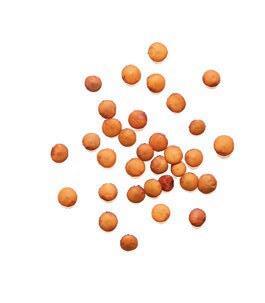

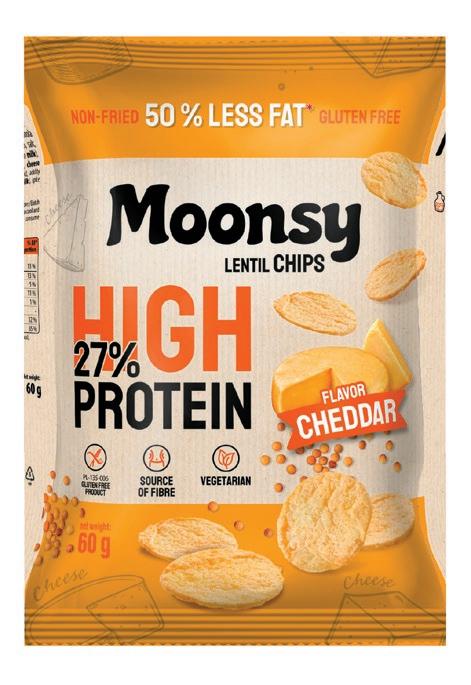





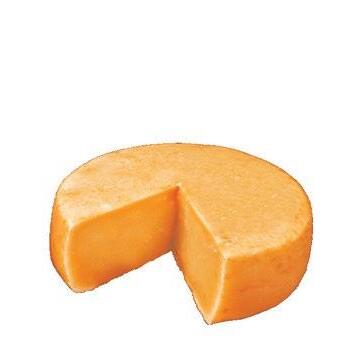
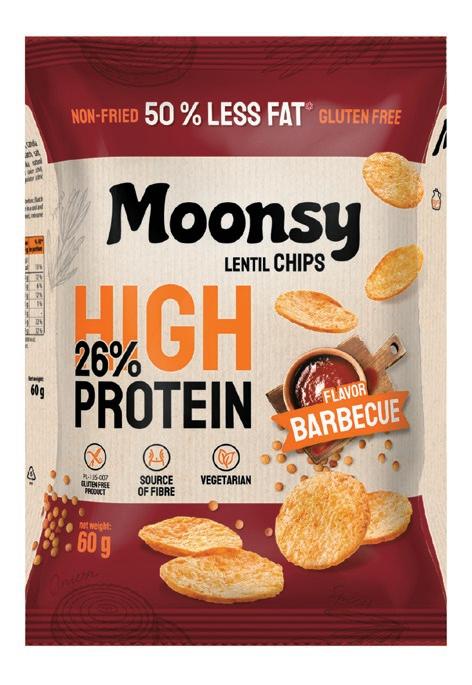

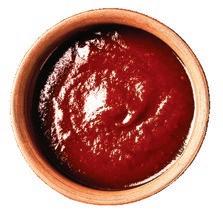









In the past year, we have seen trends such as wellbeing, clean label and flexitarianism. The growing awareness of Poles has prompted careful analysis of the composition of products, and the economic situation has forced many people to manage their finances more prudently, also when it comes to food categories. The next year is a mystery to many, but expert analyses confirm that many of the current trends are likely to continue over the coming months, and some will gain even more momentum. So what food trends will dominate in 2025?

Joanna Miziołek Deputy Editor-in-Chief
„In a healthy body there is a healthy spirit” - a saying that has been known for generations perfectly describes current trends in the food market. Despite many impediments, such as new regulations or high prices of everyday products, Poles are meticulously choosing their food for the sake of their health and well-being. This is a trend that has dominated the recent ‚post-pandemic’ years and will be one of the main trends of 2025.
The FMCG market in Poland is undergoing dynamic changes, with consumer preferences increasingly focused on health, ecology
and conscious product choice. The key trends that will shape shop offerings in 2025 point to the need to adapt sales strategies to meet new customer expectations.
„Growing health awareness means that functional and health-promoting products are gaining popularity. Consumers are eagerly reaching for foods enriched with vitamins and minerals, as well as isotonic and protein drinks, which fit the needs of active people and those who care about a healthy lifestyle. The introduction of these types of products to the offer is a response to the growing trend of preventive health care,” points out Karolina Mańkowska, analyst at ASM SFA.
As the expert points out, another important direction is the interest in local and seasonal products. Consumers prefer short supply chains, which is evident in their choices. Thus, they support local farmers and suppli-
ers. Seasonality - from being the weaker side has turned into the strong one. Choosing products that are only available for a certain period of the year has become a standard for conscious consumers. This is because they are oriented towards freshness and the origin of the products. „Updating the offer in line with the seasonal cycle and promoting local initiatives can significantly increase a shop’s competitiveness,” - Karolina Mankowska adds.
As in previous years, we may be experiencing dynamic growth in the plant-based food market. „Alternatives to meat and dairy, based on legumes, mushrooms or algae, are finding more and more followers, both among vegans and vegetarians, as well as people who limit their consumption of zoonotic products. The offer in this category should be diverse and
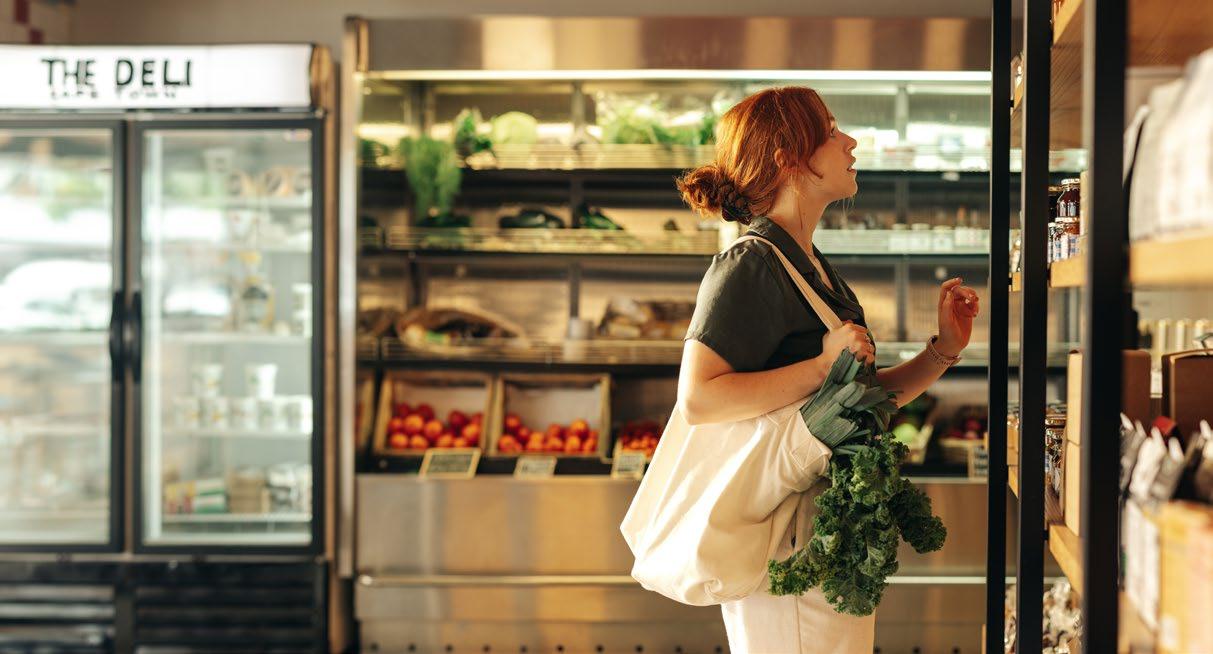
Consumers expect products that are healthy, organic, functional and tailored to their individual needs – so these will largely be created by companies.
innovative in order to respond to consumers’ expectations of a healthy and sustainable lifestyle,” points out the ASM SFA expert.
Zero waste is also an interesting theme. It combines both environmental and economic concerns, as well as a social dimension - considering the problem of hunger in many parts of the world, but also in our own backyard, as many people even in Europe are undernourished and suffer from hunger.
„The zero waste trend and sustainable packaging are playing a big role. Customers are keen to choose products without packaging or in eco-friendly, biodegradable materials. There is also growing interest in items made from ‚ugly’ fruit and vegetables, which fit in with the idea of not wasting food. Promoting such solutions is not only a pro-environmental measure, but also a response to the needs of thrifty and conscious consumers”explains Karolina Mankowska.
The aforementioned social aspect is linked to problems that affect the entire economy. This is why it is so important to be able to act in a crisis in such a way that its effects are felt as little as possible. ASM SFA’s expert points out that current economic challenges, such as inflation or problems related to global crises, influence consumers’ purchasing decisions.
„Priorities are changing - the popularity of cheaper alternatives and base ingredients is growing, prompting customers to prepare
their own meals. At the same time, global problems with importing selected products may increase the importance of local substitutes, which is an opportunity for domestic suppliers and producers,” - explains Karolina Mankowska.
Analyst ASM SFA forecasts that 2025 will bring a further development of the trends that are already shaping the FMCG market today. Consumers expect products that are healthy, organic, functional and tailored to their individual needs - so these will largely be created by companies. And those who respond first - manufacturers and retailers alike - will win customer loyalty and strengthen their position in a competitive market.
Researchers, on the basis of deep, multiyear research and analysis, try every year to predict what the next few years will look like. Many trends from previous months hold, but the environment always dictates what is new. According to Mintel’s predictions, four trends will be key for the food industry in 2025: Fundamentally Nutritious, Rule Rebellion, Chain Reaction and Hybrid Harvests.
The first trend cited relates to the relationship with food - reaching for food will be coupled with attention to health. „The emergence of GLP-1 drugs and their role in weight loss and weight management will inspire global consumers to rethink the relationship between food and medicine. In
parallel, as confusion grows around what is healthy and what is not, brands will seek to simplify their health promises, focusing on promoting simple-to-understand benefits and key nutrients,” points out Honorata Jarocka, Principal Analyst at Mintel.
As the expert emphasises, information on the packaging will play a key role in consumer choices. Data on the content of protein and fibre, as well as vitamins and minerals will attract weight-loss medicine users, for whom balancing nutritional needs will be a priority, claims Honorata Jarocka. It will also send out a strong message to consumers who structure their menus according to their individual needs or moods. Therefore, many innovations can be expected in the segment of products rich in essential nutrients. So that their consumption is associated with improved health, both in the short and long term.
The trend, described by Mintel as a ‚rebellion against the rules’, is supposed to mean, in practice, a break with established patterns of what a product and its consumer should look like. Now, the thinking and creation of new articles is to go beyond the usual standards, and food brands will focus on the real needs of consumers when designing innovationswhat their consumers actually eat and drink.
„Brands will be more in tune with how


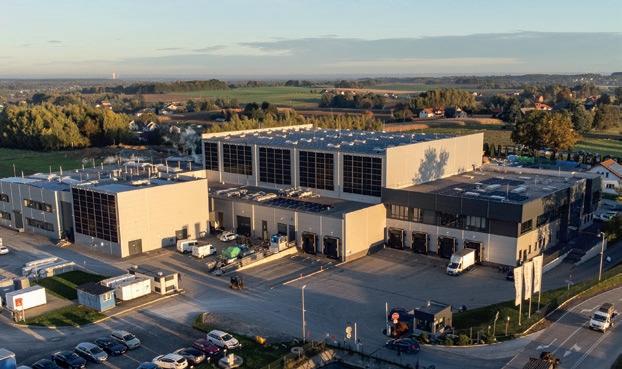
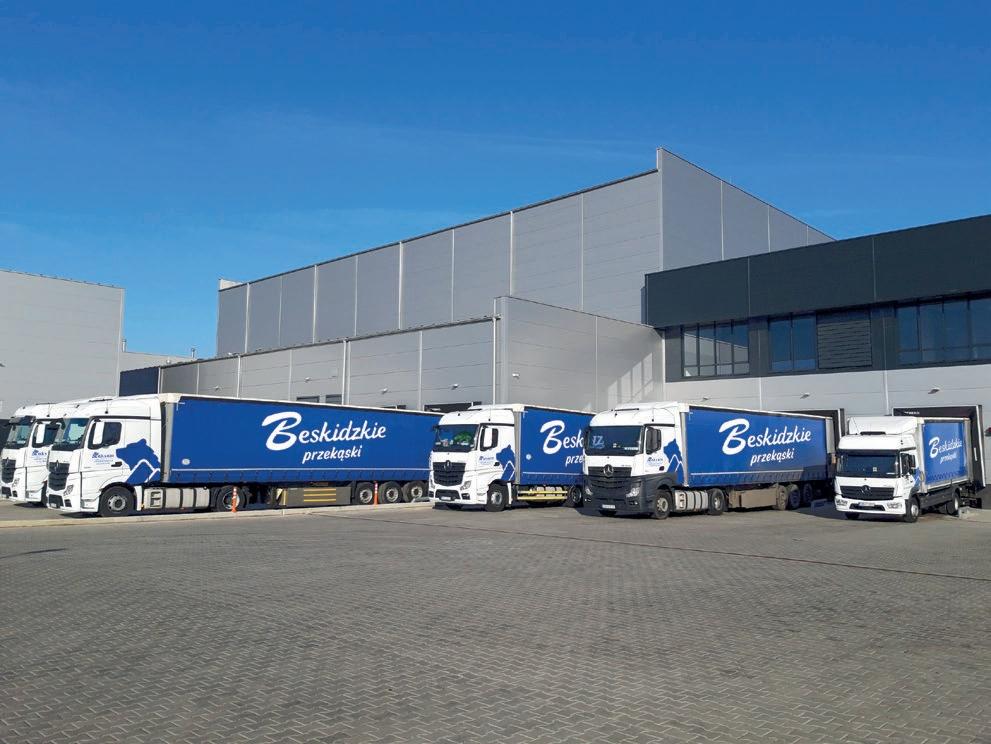
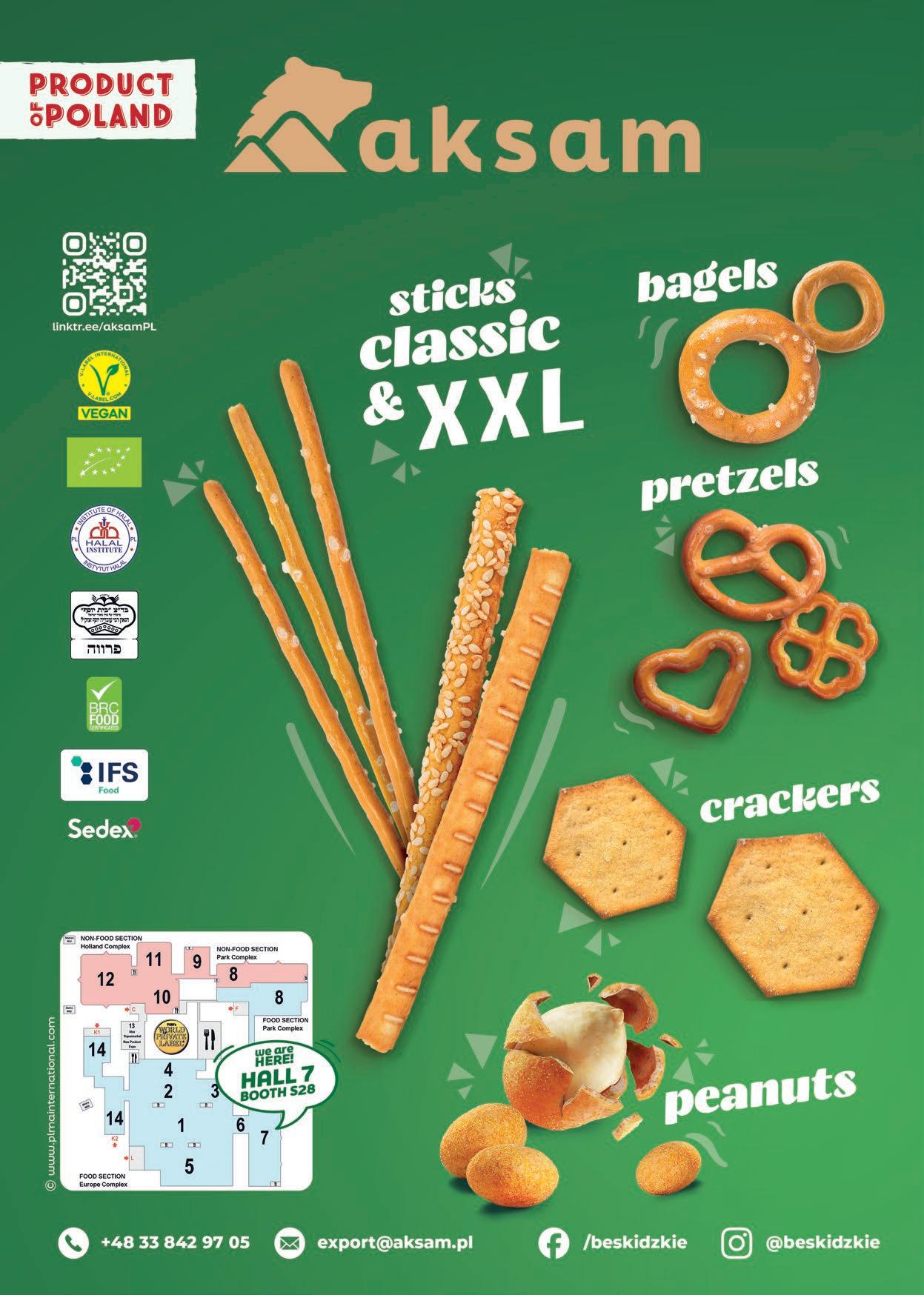
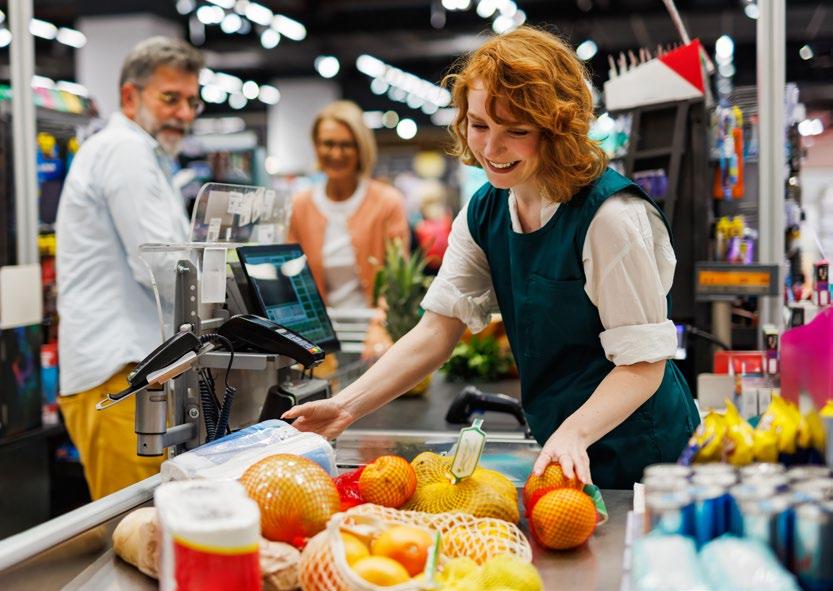
consumption actually looks rather than how they feel they should act. Supporting the rebellious tendencies of open-minded consumers who want to break the mould, brands should be more creative in their approach to innovation, experimenting with things that go beyond the norm. Brands in their communications may also seek more often to break the social taboos surrounding less publicised health issues. One important space, among others, remains the role of food and drink in managing mental wellbeing,” explains the Mintel expert.
We can therefore expect creative ideas and interesting innovations. And the inspiration will come primarily from the next generation of consumers, who are known for their openness in expressing their views, and for having a great deal of agency in the process.
For a shared future for the planet
Sustainability, ecology, recycling or decarbonisation are terms that have taken on a deeper meaning in the last year. They are no longer just an idea, but a pillar of activity for almost all producers in the food market.
„Increasingly frequent production challenges related to climate and geopolitical events are affecting not only the price of the shopping basket, but also increasing consumer awareness of how more and less remote
The younger generations will dictate the terms, and the older ones will certainly be inspired by the courage of the young to express their preferences.
global events may affect their eating style. In a volatile world, food brands need to communicate more frequently how they are adapting to changes in local and global sourcing of ingredients and the benefits to consumers of doing so. Greater cross-sector and international collaboration will be required, as well as an emphasis on scalable technology solutions. Looking ahead, more ingredients will be sourced from alternative and potentially more reliable growing regions, while consumer identities will be even more strongly shaped by social media, immigration and travel,” comments Honorata Jarocka.
That green business plays a huge role in shaping the FMCG market has become a reality. Companies report widely on their activities in this area, trying as hard as possible to support keeping the natural environment in good condition. Regenerative agriculture, which not only benefits in higher yields, but above all preserves biodiversity, is becoming an interesting thread.
Artificial intelligence has become an everyday tool used in almost every industry and at almost every level. AI is evolving at a staggering pace improving practically day by day.
„The increasing use of technology in food and beverage production is a scenario whose inevitability is primarily due to chal-
lenges within the supply chain. This may cause concern on the part of some consumers, hence brands should prioritise greater transparency and focus on communicating health benefits and advantages. Importantly, technology should be presented as complementing nature and enhancing the natural. New technologies need to be humanised and brought closer to consumers in an accessible way, while increasing acceptability for new solutions, including developing the role of AI in the food industry,” points out Honorata Jarocka of Mintel.
Artificial intelligence, used judiciously, can streamline many processes in companies, including those requiring creative thinking. Other modern technologies also contribute to the industry. However, the complete replacement of humans is not yet being considered as a possible scenario. And we should consider the development of technology as a support and a unique tool, for the 21st century.
2025 will certainly be a period of change in technologies - which will be tailored to individual needs. The colour green will be a symbol not only of plant-based cuisine, but also of the whole process of sustainable production that producers will strive for. The younger generations will dictate the terms, and the older ones will certainly be inspired by the courage of the young to express their preferences.

Aleksandra Robaszkiewicz Director of Corporate Affairs and CSR
Lidl Polska
Private labels are playing an increasingly important role in the Polish market. Their growing popularity is driven by increasing consumer awareness and the search for high-quality products at affordable prices. Private labels have been an important part of Lidl Polska’s product range since the beginning of our operations. Thanks to products such as Pilos, Pikok, Alesto, Cien and Solevita, we offer our customers high-quality products at competitive prices.
One of the main challenges in the private label sector is to maintain high quality while keeping prices attractive. At Lidl Polska, we focus on working with proven Polish suppliers who meet the highest quality standards (IFS, BRC, HACCP), which allows us to offer products that our customers trust.
Consumers are also concerned about the origin of products and their impact on the environment. In response to this, Lidl Polska has implemented a number of purchasing policies that regulate, among other things, the sourcing of raw materials, the reduction of plastic and the prevention of food waste. In addition, in 2024 alone, more than 340 Polish suppliers exported their products under Lidl’s own brands to 28 foreign markets, with an export value of more than PLN 6.8 billion.
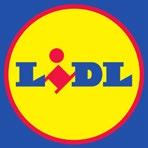

Jarosław Stefańczyk Director of Innovation and Brand Development
Biedronka
Jeronimo Martins
Private label is no longer seen by consumers as a cheap alternative, but as a full-fledged consumer choice. At Biedronka, we have been consistently focusing on quality for the past 30 years, developing products that in many cases exceed the quality of the market leaders, while still being available at a competitive price. Consumers are increasingly turning to private label, driven not only by price but also by values such as health, simple composition, high nutritional value or environmental responsibility. Trends such as zero sugar, organic, clean label or high protein are becoming standard - and it is often private labels such as Go Vege, Fruvita Skyr or Vital Fresh, available in the Biedronka chain, that are leading the way. The Jeronimo Martins Group’s presence in four different markets enables us to identify consumer needs and implement innovations in this area faster than the competition. Private labels have great potential for growth in Poland - their market share is still lower than in Western Europe. Their future success will be determined not only by price, but above all by quality, innovation and the ability to tell a brand story.

Radosław Dac
Product Director
Auchan Polska
At Auchan, we are convinced that there is great potential for the development of private labels. Growing consumer confidence, product quality and flexibility of offer are driving the growth of this segment. Its dynamic development can be seen in many categories.
Private label is all about high quality, good composition and affordable prices. They are no longer seen as cheaper substitutes, but as full-value products that meet quality expectations. Consumers are increasingly turning to private label products as they appreciate their value for money.
In developing our offer, we closely monitor the market, trends and changes in consumers’ needs and expectations. Auchan’s own brands (Kciuk, Czerwony Ptak, Auchan Collection and Pewni Dobrego) offer customers a wide range of products tailored to different tastes, needs and expectations. They cover 360 fresh and dry food categories, representing 98% of Auchan’s offer.
The development of private label offers the opportunity to present a wide range of products and to take up more shelf space. Full control of the offer allows it to be flexibly adapted to market trends, customer expectations and seasonality.
The main challenges facing the private label sector are market consolidation, new climate and environmental regulations, and rising production costs, especially for small and medium-sized producers.


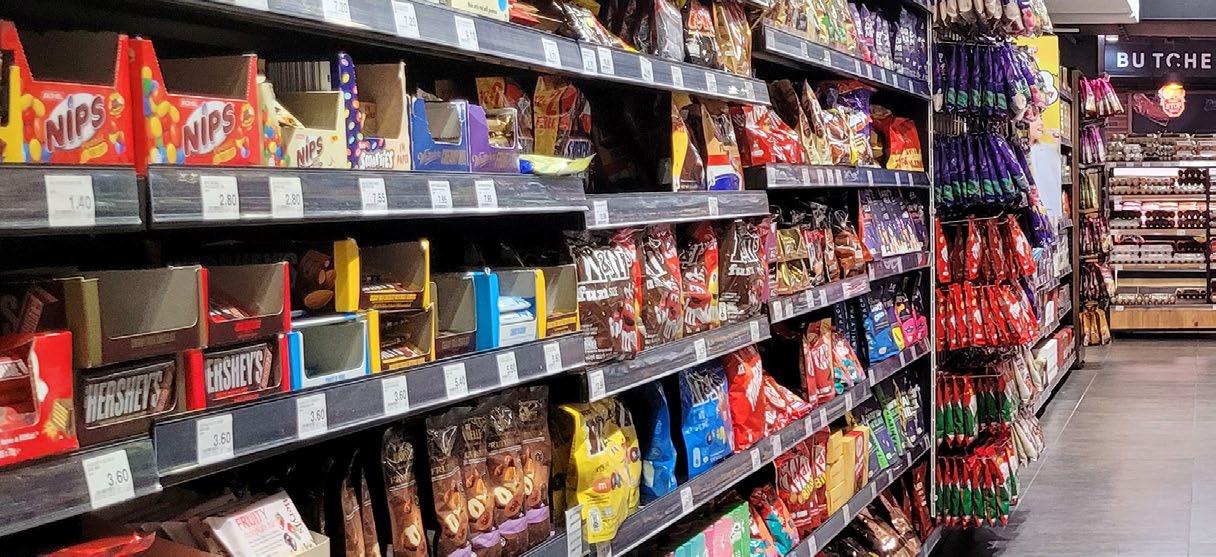
Most of us crave a little something from time to time. And although confectionery is a category that is mainly associated with the youngest consumers, older consumers also enjoy a sweet treat. The choice of sweets on the shelves is huge: bars, wafers, jelly beans, biscuits, chocolates, pralines, lollipops and many other delicacies, all in the most varied varieties and sizes.

Katarzyna Jastrzębska Editor
The confectionery market continues to grow rapidly, despite all sorts of problems, such as inflation or the collapse of cocoa cultivation. This is due not only to the undeniable weakness of Poles for various kinds of sweets, but also to the fact that products from this category are the ideal gift for various occasions for both young and old. What products do Poles particularly like?
Sweets are one of the largest categories – Poles very often choose sweets as a small “something” for themselves or give them as gifts. Despite the difficult situation on the cocoa market, the confectionery market continues to grow and, according to NielsenIQ3 data, reached a value of PLN 19.8 billion in the whole of 2024, i.e. 6.3% more than
the year before. As it turns out, the favourite sweets of Poles are cakes and pre-packaged biscuits, on which they spent the most (PLN 3.9 billion). Next places are taken ex aequo by pralines, which are perfect as gifts, and chocolate bars - both categories reached a result of PLN 3 billion, and all three account for half of the confectionery market.
The NielsenIQ data also shows that all confectionery categories have seen an increase in sales value in the last twelve months, but chewing gum, muesli bars and chocolate bars have grown the most. “Muesli bars also recorded the most impressive increase in sales volume (in kg) compared to 2023 (+7.1%). Also ‘on the upside’, although much smaller, were ready-made cakes and pralines. In this respect, they stood out against other categories, which were either stable or recorded a decline in volume,” explains Wojciech Rydzewski, Client Business Partner at NielsenIQ. A much worse result was recorded by jerky: -15.5% in volume terms. The reason for this can be attributed to the 18.6% increase in the average price per kilo.
“Across the confectionery market as a whole, supermarkets and discounters recorded the most dynamic growth in sales value
among channels - 10% each. Both channels were stable in terms of volume, while hypermarkets and small-format shops recorded declines of more than 8%. Discounters hold a dominant position in the market and are responsible for 43.7% of the value and 53.6% of the volume of sweet snacks sold in Poland,” – comments the NielsenIQ expert.
With rising prices due to inflation and the rising cost of cocoa, it might seem that consumers are turning to private label sweets more often. However, it turns out that indeed this is a trend that can be observed in many food categories, but it does not apply to confectionery. According to CMR data, when looking at volume sales and the number of private label packs in supermarkets, both have fallen, comparing 2023 to 2022.
In this channel, biscuits and pralines were the largest segment in terms of sales value, accounting for around 22% and 15% respectively. Impulse wafers and chocolate bars were jointly responsible for almost 15% and chocolates for 13%. The result of 5% was achieved by jellies and marshmallows. It is also worth noting that supermarkets had the highest number of different variants of biscuits, with
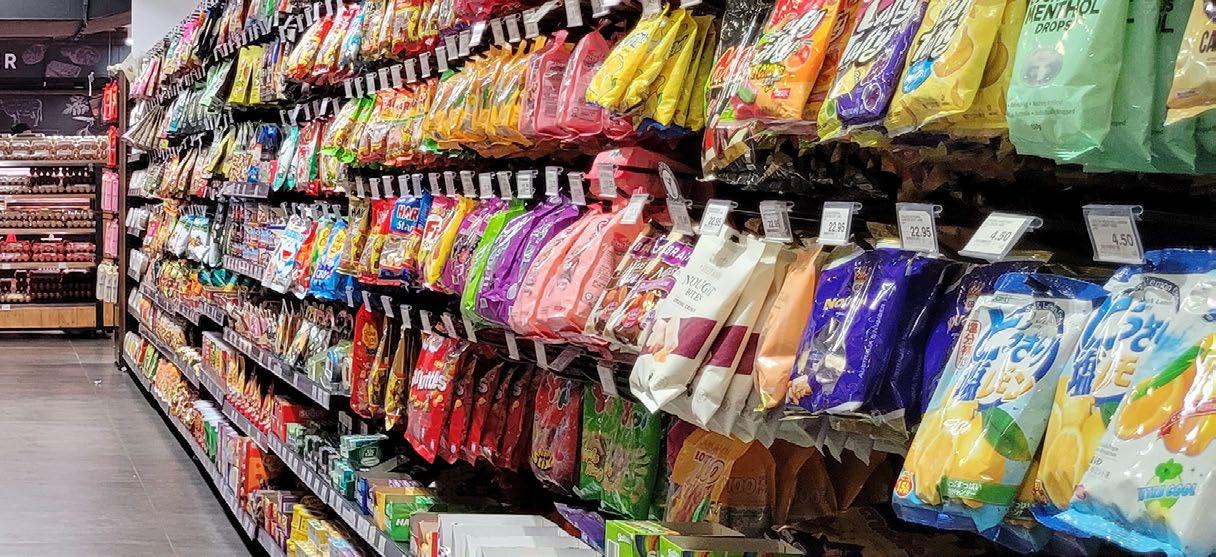
Despite the difficult situation on the cocoa market, the confectionery market continues to grow and, according to NielsenIQ3 data, reached a value of PLN 19.8 billion in the whole of 2024, i.e. 6.3% more than the year before.
According to a survey conducted by PayPo in 2023, the tradition of giving gifts on the occasion of the ‘Hare’ is not yet widespread, with 37% of respondents admitting that they give gifts on this occasion.
almost 150 different types on shop shelves, according to CMR data. Supermarket consumers also had a wide choice of pralines - just over 60 variants. At the time, Wedel Ptasie Mleczko vanilla in dessert chocolate 340 g, Merci Finest Selection Red 250 g and Ferrero Raffaello coconut 150 g were the most popular. It is also worth noting that both the biscuit and praline categories saw new arrivals in 2023 - 12 and six variants respectively.
“The largest number of new products was in impulse sweets, a total of 20. These were distributed equally: 10 new impulse wafers and 10 new chocolate bars. They account for around as much as 2% of the share in the number of packages. 20 novelties is a significant number, especially when compared to the average number of variants in a supermarket of around 90. What is more, in 2023, the number has only increased by around 2 variants. This means that some novelties had to replace other variants. However, not the best-selling products. And in 2023 these were: 2 versions of Kinder Bueno and Prince Polo Classic XXL,” comments Przemysław Bojanowski, analyst at CMR.
The cocoa market has been facing difficulties for some time, which has had a substantial impact on the cost of raw materials. This has led to an increase in the cost of chocolate and other confectionary products containing cocoa. As Dr Justyna Rybacka, an economics and finance expert at WSB Merito University, observes, the rise in cocoa prices on global markets has been particularly noteworthy over the past several months. From May 2023 to the second half of April 2024, prices have surged from just over GBP 2,000 to over GBP 11,000 per tonne, marking a more than fivefold increase. ‘Cocoa prices are set to continue rising on global exchanges, with no signs of this trend abating in the near future. In April, the price of a tonne of this commodity was well above US$11,000, and it is my opinion that this is not the peak. While it is true that it has fallen slightly recently, it is now back to its previous highs. Later this year, it is anticipated that the value will exceed USD 13,000, potentially approaching USD 15,000.’ Robert Biegaj, retail market expert
at Offerista Group As previously discussed, rising cocoa prices have the greatest impact on the cost of sweets and desserts. According to the report, the average price has increased by 10.6% year-on-year, and experts admit that there are many indications that this is not the end of the increases. According to industry experts, this situation is due to a poor harvest of the raw material in Africa, the world’s main supplier of cocoa seeds. It should be noted that cocoa trees are not very resilient to weather changes, and climate issues can significantly impact yields. According to the report, UNCTAD predicted a cocoa shortage of 374 tonnes in 2024, which is significantly higher than the 74,000 tonnes recorded in 2023. The long-term outlook for cocoa prices is positive, with a predicted decline set to lead to cost reductions. This will incentivise farmers to maintain or resume production, resulting in a balanced supply and demand scenario. We anticipate that this will happen in approximately four to five years, which is the typical timeframe for cocoa trees to bear fruit.
The number of high-protein products on supermarket shelves is increasing all the time. It is no longer just high-protein dairy products - the trend is spreading across more and more categories. High protein’ labels are appearing on meat, sausages and even snacks, confectionery and ice cream. What is driving their growing popularity?

Katarzyna Jurkitewicz Editor
Products with a high protein content are not yet a very broad category, but they are gaining ground every year. Consumers are reaching for them more and more - and this is no longer just a matter of curiosity, but also of conscious, planned choices. Changes in eating habits are creating new trends and thus the emergence of innovative food products.
There is currently a shift towards healthy and active living. Consumers are looking for unprocessed products that provide the body with essential ingredients. One of these is protein, the amount of which in the diet was initially counted mainly by athletes and other physically active people. Now, more and more consumers are paying attention to its adequate content in their meals.
Protein is an essential macronutrient for maintaining muscle mass and rebuilding it. It is therefore recommended that physically active people reach for high-protein products. They are also recommended for pregnant women, the elderly and people in convalescence. High-protein products are also chosen by those on a weight-loss diet, as the high amount of protein ensures satiety for a long time.
“The growing interest in protein is driven by an awareness of its role in building muscle, regeneration and providing a long-lasting feeling of satiety. Diets such as keto, low-carb and high-protein diets are driving demand for these products, and effective
marketing and education are further supporting their popularity,” notes Karolina Mankowska, analyst at ASM SFA.
In general, high-protein products are aimed at people who want to look after their health, regardless of age or activity level. This trend has largely been started by young people who have started to pay more attention to how they eat - they care about high quality and functionality. Their lifestyle has influenced manufacturers, who have started to create more and more protein-enriched products, and retailers, whose in-store range of ‘high protein’ products is becoming wider and wider.
The beginning of the year is a time when many people start making New Year’s resolutions. “I will start exercising regularly”, “I will lose weight” or “I will eat healthily” - are assumptions that come up a lot at this time. And those who want to achieve the figure of their dreams reach for high-protein products that support the body in achieving its goal.
Therefore, January sees a sharp increase in additions to shopping lists for protein products. As indicated by Listonic ads2 data, there is a marked drop in interest in such products in December. This is related to Christmas preparations, during which protein products do not play an important role. However, already in January, there is a significant increase due to New Year’s resolutions.
The data collected also shows that the popularity of this type of product is increasing year on year. “Comparing the first six months of 2022 and 2023, this was an increase of 85% for protein products and a 50% increase in the skyr and kvarg catego-
ry,” the analysis reads.
Similar conclusions are drawn from NielsenIQ data. “When comparing year-on-year sales data from the high protein dairy category, a double-digit growth trend is evident. If we take a closer look at the yoghurt category, for example, there is a more than threefold increase in sales, both in terms of volume and value of sales of high-protein products in the yoghurt category nationwide,” – notes Karol Krakowko of the institute. He adds that the dynamics in the fixedweight meat products category are even greater. Over the past year, the segment has seen an almost fivefold increase in sales value and a nineteenfold increase in sales volume.
High-protein products are of interest to many groups. These range from athletes to the elderly, women and children. This diverse range of consumers means that there is an ever-increasing choice of ‘high protein’ products on supermarket shelves – to suit the tastes and needs of all consumers.
“Until a few years ago, high protein products were mainly associated with professional weightlifters. Nowadays, you can see a trend that ‘high protein’ includes not only protein supplements, but also meat products and their substitutes, dairy, vegan and vegetarian products, as well as RTE (ready to eat) snacks,” – notes Karol Krakowko of NielsenIQ.
There will be more and more high-protein products on the shelves and, over time, they will also start to include new categories, as many manufacturers will want to capitalise on this trend. Retailers should therefore keep an eye on changing consumer habits and stock their outlets with ‘high protein’ offerings now.
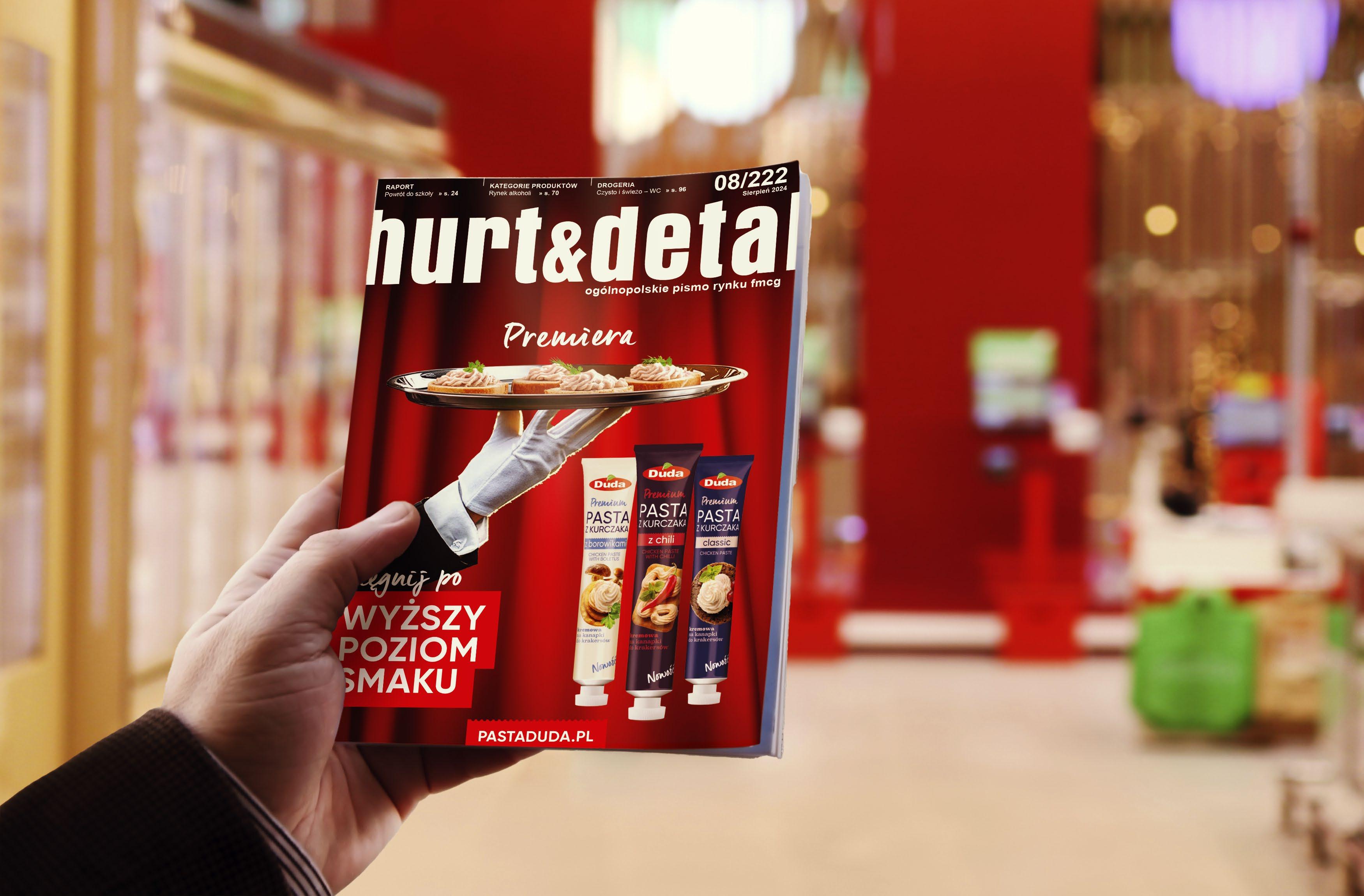

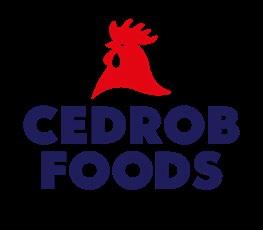
70 Karolina Street
32-608 Osiek, Poland
+48 33 842 97 05 export@aksam.pl aksam.pl
Aksam is a Polish, family-owned company with 32 years of experience in the production of snacks. The Business started with the production of “Beskidzkie Paluszki” – salty baked sticks. Over the years, Aksam has expanded its portfolio to include other products, such as pretzels, and has been strengthening its position on the Polish salty snacks market year after year.
Quality and safety are core values, which is why Aksam put them first. The products are of high quality, tasty, and contain the right ingredients. Aksam continuosly improve production and quality processes, train the Staff, and modernise machinery. The company holds certifications in food safety and quality: BRCGS, IFS, Halal, V-label and SEDEX.
In 2024, Aksam exported its products to 32 countries on every continent and continues to seek new destinations.
19 Konarskiego Street
87-880 Brześć Kujawski, Poland
+48 666 279 372
+48 54 252 19 69 brzesc.pl
BRZEŚĆ Sipa is a family-owned company, manufacturing since 1984, specializes in the production of confectionery and snacks based on choux pastry products, produced on fully automatic lines. The flagship products are Mini Eclairs in various flavors, Puffs to fill and Mini Meringues. Production is being made according to the IFS, BRC certificate, U.S. FDA.
22 Opolska Street, 40-084 Katowice, Poland +48 32 731 10 00 marketing@duda.pl cedrobfoods.pl
For over 30 years, we have specialized in producing iconic Polish cold cuts. We manufacture high-quality products, including those from the renowned Duda brand, in five production plants with a monthly production capacity of 10,000,000 kg.
We are a leader in the meat industry and the fastest-growing company in the fresh food sector in Poland. Our product range is available in 40 countries worldwide, and each year, over 10,000,000 Poles purchase our products.
What sets us apart is our multi-billion scale operations and a fully integrated, modern, and unique farm-to-table production chain at the European level. The production of Cedrob Group, of which we are a part, encompasses feed preparation, integrated farming, and the production of meat, cold cuts, and ready-made meals.


6 Kniewska Street 70-846 Szczecin, Poland +48 91 464 72 43 export@drobimex.pl www.drobimex.pl
Polish company, one of the largest poultry businesses in Poland with more than 70 years of tradition and experience, located in north-western Poland in Szczecin. It is a daughter company of Wiesenhof Poultry Group. The company manages its own parent stocks, hatchery, rearing through Drobimex contract farmers, slaughterhouse, and cured meat factory.
It holds quality and safety certificates, including the German QS Certificate, UK BRC Certificate, and Islamic Halal Certificate. The QS system covers all stages of food production up to store shelves. The company also exports its goods to over 50 countries outside the EU.
Drobimex implements continuous technical and technological development and modernization. Its sustainability strategy encompasses activities across all areas of Environmental, Social, and Governance.
23 Władysława Grabskiego Street 32-640 Zator, Poland Export Department: +48 33 870 35 71 ext. 106 export@eurowafel.pl eurowafel.pl
Eurowafel is the producer of different sort of wafers. Since its establishment in 1984, it has developed over the years by investing in modern machines and innovative technologies.
On the one hand, we base our production on traditional recipes but on the other, we use innovative solutions to develop new productsas a response to constantly changing market expectations.
Eurowafel serves its Clients with high quality products by ensuring product safety according to IFS Certificate.
We use the best flour and only simple and verified ingredients. Combining tradition with the latest researches on health food, we implement new, light and healthly products that can be served in many ways.

251 Rolnicza Street Dziekanów Leśny 05-092 Łomianki, Poland maxpol@maxpol-targi.com.pl maxpol-targi.com.pl
Maxpol is a company with 30 years of experience in the exhibition industry. Throughout this period, several thousand exhibitors took part in the trade fairs organized by Maxpol. The company organizes fairs in Europe, Asia, North America, South America, Africa and even Australia. Maxpol designs and builds standard and custom stands, provides transport of display units, comprehensive logistic services for fair participants and technical support during the fair. The company holds the title Ambassador of Polish Food Export.


48 Strażacka Street 44-240 Żory, Poland +48 32 434 97 00 export@mokate.com.pl mokate.com
MOKATE stands for passion, tradition, and innovation.
As a family-owned company, we blend generations of experience with modernity to deliver high-quality products worldwide. Our portfolio includes aromatic coffee, tea, healthy snacks, innovative meat substitutes, and more. Exporting to nearly every corner of the globe, we prioritize quality, growth, and staying true to our family heritage. Explore our world of flavors and aromas – crafted with care and precision.
MOKATE – Tradition, Innovation, Quality.
14 Chlebowa Street 44-337 Jastrzebie-Zdrój, Poland +48 32 47 33 833 export@prymat.pl prymat.pl
Prymat Group is the leading spice and seasoning producer in Poland with our Prymat and Kucharek brands. We are also an experienced manufacturer of processed, wet and dry vegetables – under the Smak brand. We deliver products to all key international supermarket chains, both Polish and foreign ones, to HoReCa industry and B2B. With the quality of our products in mind, we work in accordance with the highest quality standards: IFS and Halal. Our R&D and quality department develop products that meet the needs and requirements of consumers. All are compliant with standards and competitive in terms of flavour combinations and quality.
Our products are available in many countries such as Australia, China, USA, United Kingdom, Spain, Sweden and even in Senegal or Indonesia.
2 Przemysłowa Street 37-100 Łańcut, Poland +48 17 225 30 09 office@ros-sweet.pl ros-sweet.pl
ROS-SWEET Sp. z o.o. is a Polish food manufacturer operating since 2006, specializing in processing and packaging nuts, dried fruits, seeds, and grains. Our products are imported to nearly 40 European countries, establishing us as the trusted partner in both domestic and international markets.
We invest in advanced technologies to offer fat-free roasting, slicing, customized labeling, and flexible packaging. We import raw materials directly from countries of origin and hold the BRC certificate confirming high food safety standards.
Our product range includes our own brands - Moreso, Melbake’s, Fruit Cubes, and Polish Pumpkin Kernels - targeting both B2C and B2B markets. Our products are also snacks, peanut butters, sesame pastes, and Private Label solutions, helping our partners develop tailor-made products that reflect their unique brand identity.

Export Office 22B Bukowinska Street, 02-703 Warsaw, Poland +48 22 521 33 13 export@sokolow.pl sokolow.pl
SOKOLOW S.A. is one of the largest meat producers in Central and Eastern Europe and one of the industry leaders in Poland. We produce the highest quality meat (beef, pork, chicken), beef burgers, pizza toppings, processed meat products (cold cuts, hot dogs, salami, meat snacks, ready meals, canned food) as well as plant based products. We offer certified halal and kosher production of beef meat and processed beef and chicken products. Our production runs according to IFS and BRC standards. We export our products to around 40 countries.
22 Żernicka Street 62-023 Robakowo, Poland sprzedaz@sushifoodfactor.pl sushifoodfactor.pl
Sushi&Food Factor is a leading producer of ready-to-eat sushi and Asian-inspired dishes in Europe. Founded in 2015 in Robakowo, Poland, the company delivers fresh, high-quality, and innovative products to consumers across 15 European countries daily. By combining local roots with a global vision, Sushi&Food Factor continues to revolutionize the ready-to-eat Asian cuisine market, making premium sushi more accessible to millions of consumers.
78 Podgorna Street 87-300 Brodnica, Poland +48 56 493 28 51 export@vobro.pl vobro.pl
VOBRO was established in 1986. The company employs over 300 people, most of them are long-term employees who present vast experience and have been associated with the production of sweets form many years.
The VOBRO company is known preliminary for its production of chocolate sweets – including chocolate pralines. FRUTTI DI MARE (seafood-shaped pralines), as well as CHERRY PASSION and LOVE & CHERRY (cherry pralines in chocolate) brands are products known to chocolate praline consumers in markets around the world. A large part of the company`s products are chocolate candies and chocolate bars – including the very popular TRUFLA and JAMAJKA brands. For several years, the company has also been investing in other types of sweets: jellies, including new brand JELLY DOT and different formats of bars. The VOBRO brand is a leader in many markets in term of the occasional products offer, i.e. products bought by consumers as calendar occassions (Valentine`s Day, Mother`s Day, Christmas, etc.).
Discover a new coffee experience! Cappuccino Zero from Mokate is a response to the latest trends.
Combining the intense aroma of coffee, the softness of milk and the sweet note of stevia, with no added sugar, it is ideal for those who value health and taste.
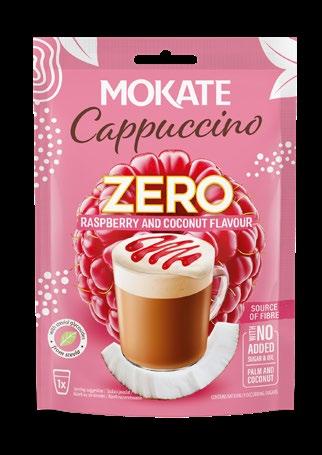
Sokołów salami is the leader in the salami slices segment. This is undoubtedly due to its high quality and taste which has remained unchanged for years. The appropriate maturing process and carefully selected seasonings make this product a real speciality that satisfies even the most demanding palates. Salami is distinguished by its high meat content (149 g of pork per 100 g of product). Perfect as an addition to sandwiches, toast, pasta and pizza.
www.SOKOLOW.pl

Mokate Matcha Latte is a harmonious blend of Japanese green tea and velvety milk, delivering an exceptional taste experience with a creamy texture. Explore our range of flavors, crafted to suit every mood and season.
www.MOKATE.com
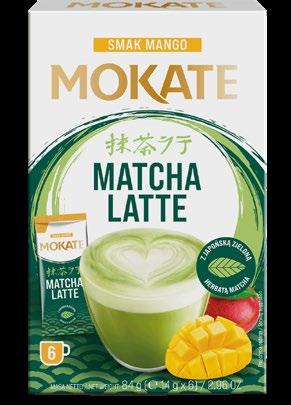

Meet the unique HIGH PROTEIN Poultry Kabanos - a delicious snack that provides up to 32 g of protein per 100 g of product. Made from the best quality poultry meat (185 g of meat in 100 g of product), our kabanos are the perfect choice for active people and those who care about a healthy diet. Enjoy great taste without compromise!
www.SOKOLOW.pl

Sushi&Food Factor offers nearly 580 types of sushi rolls and almost 400 different sushi sets, with daily production reaching 170,000 trays. Our range includes small, medium, and large sets, carefully tailored to various price points to meet the needs of diverse customers across Europe.
www.SUSHIFOODFACTOR.pl
Sushi&Food Factor offers a variety of onigiri: savory options with chicken teriyaki, salmon, and shiitake mushrooms, and sweet versions like mango-coconut. Each onigiri is made with seasoned rice and high-quality ingredients, providing a convenient and tasty snack for every occasion.
www.SUSHIFOODFACTOR.pl

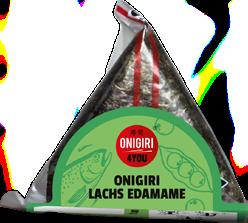
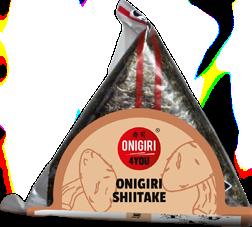
Soleo Salty Snacks are baked products that will appeal to everyone. All made with top quality ingredients, our snacks are available in the form of sticks, pretzels and tube combining both the products. All snacks listed are vegetarian friendly, which is confirmed by the European V-Label Vegetarian certificate. They do not contain monosodium glutamate.
www.AKSAM.pl
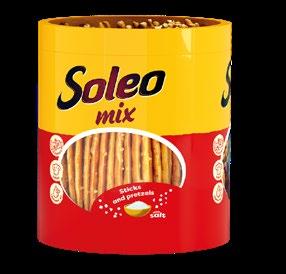
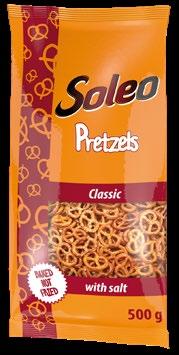
White Mini Meringues made with care from fresh egg whites, sugar and nothing more.
Free from preservatives, and artificial foaming agents, these little clouds of sweetness are as natural as they are delicious. Light, crisp, and perfectly bitesized, they’re ideal for desserts, coffee breaks, or simply when you crave something pure and sweet.
www.BRZESC.pl
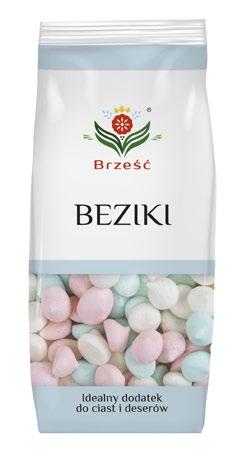
Top seller of Drobimex products that has enjoyed wide recognition among consumers for over a decade. Gluten-free premium product from the Drobiowe Specjały line. Ham with 90% meat. This product is famous for its low fat content, it is delicate, aromatic and easily digestible. It is a source of protein and recommended for low-calorie diets and food allergies.
www.DROBIMEX.pl
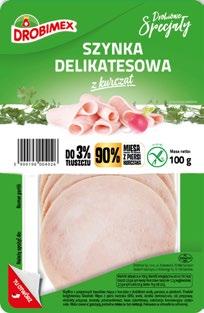
This novelty from Vobro will make happy fans of fruity pleasures! The delicious Pralines Plum in Chocolate stands out not only for its exquisite taste, but also for its unique plum shape, hiding a plum flavored filling and a whole plum inside. Each praline is packaged in an elegant purple wrapper, decorated with an appetizing image of a juicy plum coated in chocolate. Product is available in two formats: 144 g carton box and 192 g gifting packaging with a real rosette.

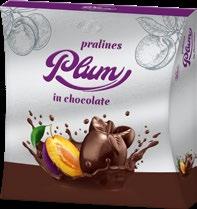

Puffs to fill are the perfect solution for a quick, versatile snack – not only do they impress with their delicate texture and elegant form, but they also serve as a delicious base for a variety of flavor combinations. Thanks to their neutral taste, puffs to fill pair perfectly with both sweet fillings such as creams and fruitsbut also savory options like cheeses, spreads, or veg etables.
www.BRZESC.pl
www.VOBRO.pl
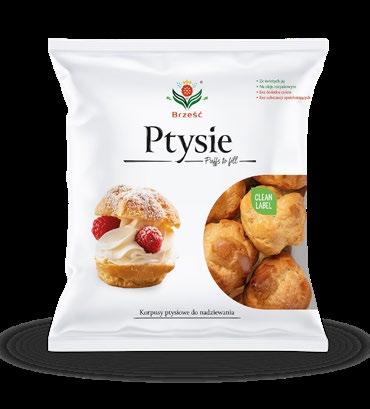
Winerki sausages – who hasn’t tryed them? Whether warm from the pot or cold, these chicken sausages are a real treat. They’re characterized by their delicate bite and subtle smoky aroma.
Sausages from Drobimex are popular among a wide range of customers. These Gluten-free products are known from their quality and great taste. Enjoy your meal with healthy sausage!
www.DROBIMEX.pl
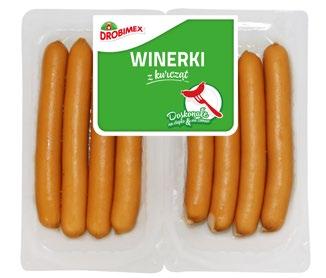

Available in a convenient tube
– Duda Premium Chicken Paste – is the brand’s response to current consumer trends towards light, conscious eating, while also being quick and easy to use.
This innovative product takes consumers to a higher level of taste, offering three flavors to choose from: classic, with boletus, and with chili.
www.PASTADUDA.pl
Polish pumpkin seeds by Moreso, coated in milk and dark chocolate with a hint of salt. A flavourful snack in a convenient doypack pouch with a resealable zipper. Perfectly aligned with current food trends. Available in 70 g packs under the Moreso brand or for private label projects.
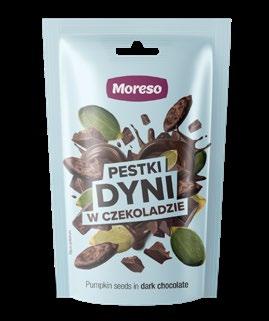
www.MORESO.pl
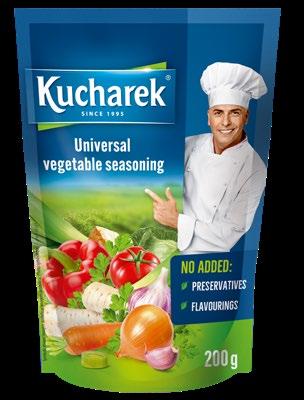
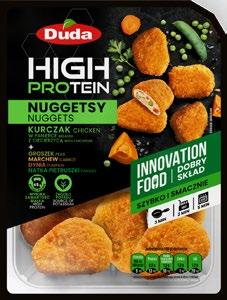
Cedrob Foods S.A. has expanded its Duda High Protein line of cold cuts to include ready-made meals. The producer aims to redefine the concept of fast food, as Duda’s version is indeed quick – that part is consistent. However, it differs from the commonly known fast food in one key aspect: it is simply healthy, based on a clean-label approach. Thanks to the use of unique production technology, demanding consumers will find exactly what they are looking for – maximum nutritional value from Polish poultry meat and vegetables, without the use of fortification.
www.DUDA.pl
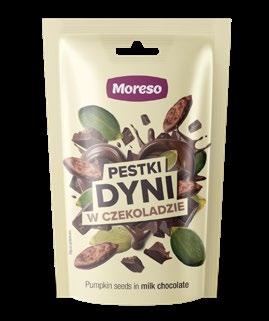
Kucharek
Universal vegetable seasoning is a versatile blend of carefully selected herbs, spices, and dried vegetables, perfect for enhancing the flavour of a wide range of dishes. Whether you’re preparing soups, sauces, meats, or vegetables, this seasoning adds a rich, balanced taste and aroma. Its convenient packaging ensures freshness and ease of use, making it an essential in every kitchen.
www.PRYMAT.pl
Creamy peanut butter available in two texture variants – smooth and crunchy. Offered in 200 g and 500 g packaging under the Moreso brand, with the possibility of private label cooperation.
www.MORESO.pl
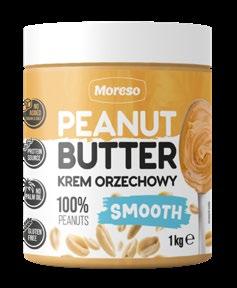
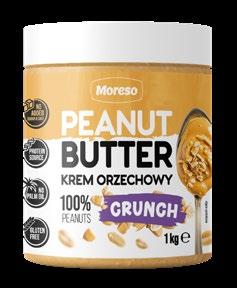
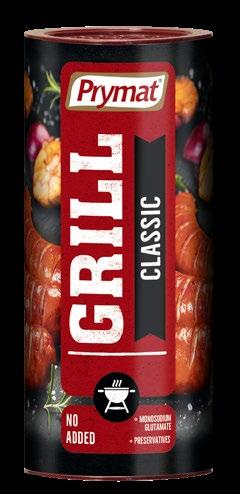
Grill Seasoning is an excellently crafted blend of herbs, spices, and dried vegetables. The refined taste and aroma of the seasoning perfectly enhance the flavour of meat dishes prepared on the grill or in a pan. The tube packaging allows for convenient and economical use of the seasoning, letting you enjoy its aroma for longer.
www.PRYMAT.pl
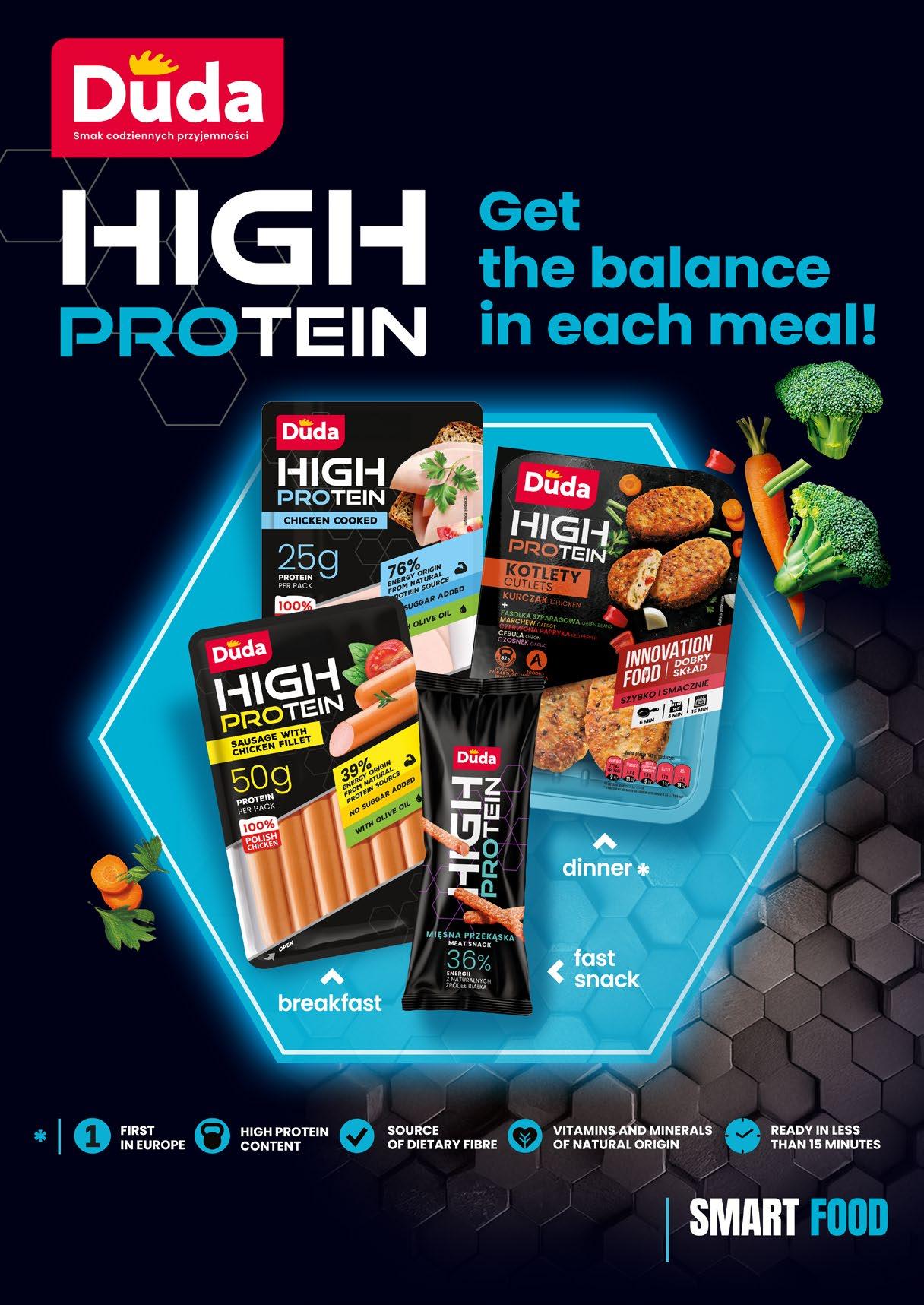


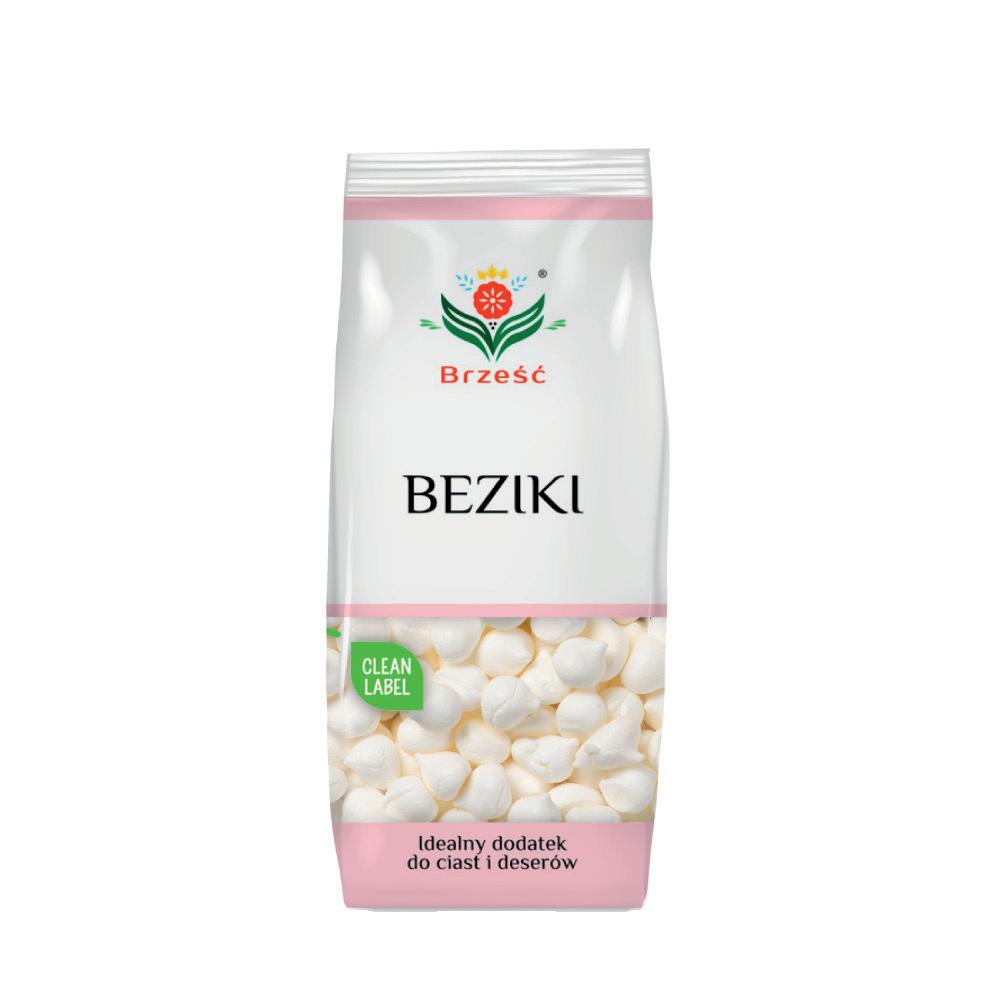



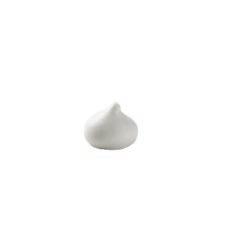




Enjoy our light and crispy choux pastry shells and fluffy white meringues –made with a short, clean list of quality ingredients. No fuss, no fillers – just simple perfection. Ideal for desserts, tea time, or a guilt-free treat anytime!